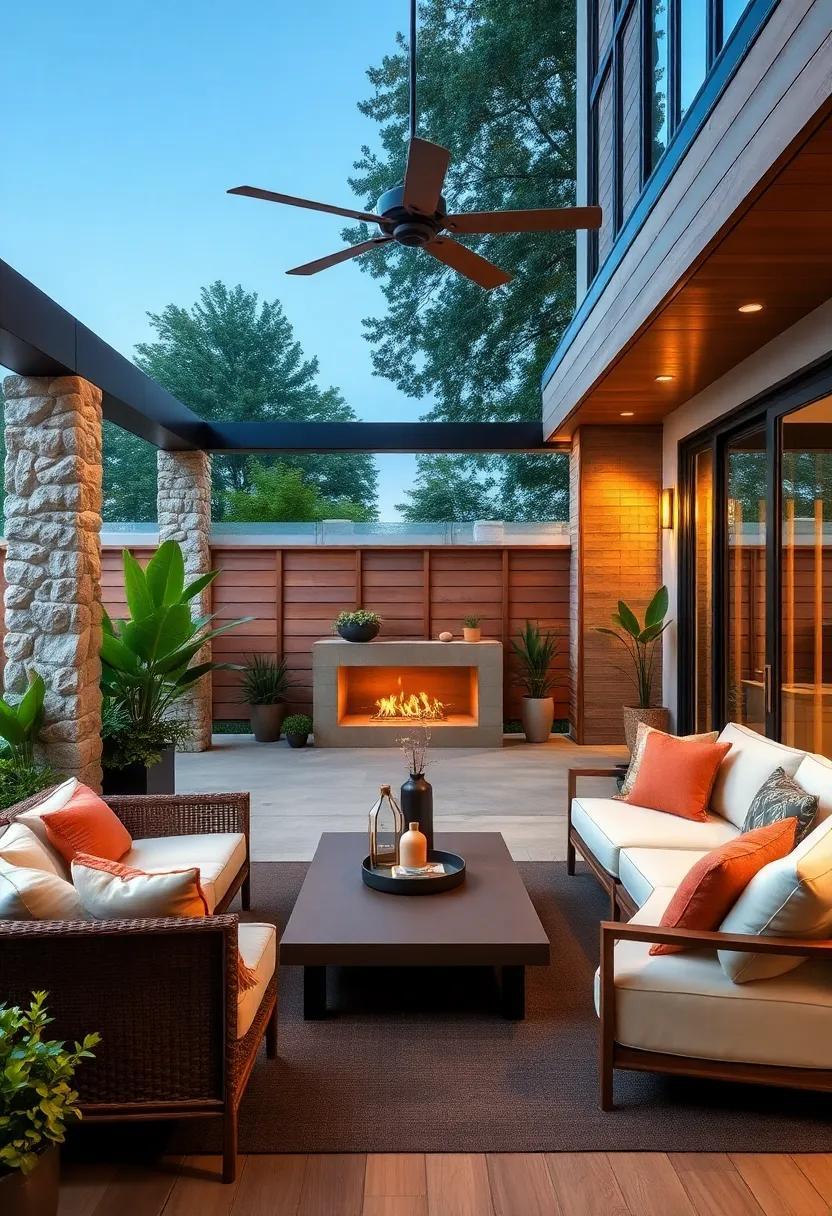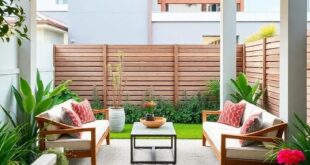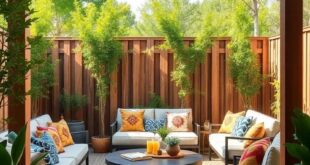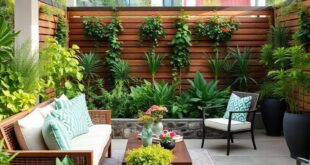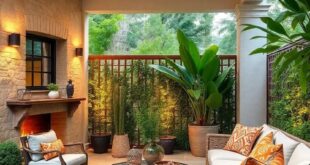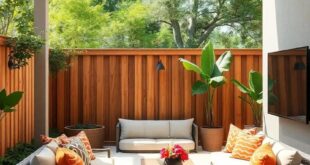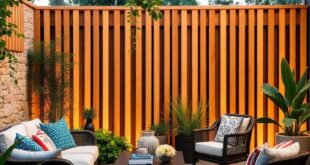In a world where the hustle and bustle of daily life frequently enough leaves little room for extensive upkeep, the search for stylish yet low-maintenance materials has never been more pressing. Among the myriad options available, wood remains a timeless choice—its natural beauty and warmth infusing spaces with a sense of comfort and elegance. However, customary wood can entangle homeowners in a cycle of staining, sealing, and repairing that detracts from its charm. Fortunately, innovative alternatives have emerged on the market, offering the aesthetic appeal of wood without the demanding maintenance. This article will explore a range of minimal maintenance wood alternatives that promise effortless elegance, inviting you to elevate your interiors while reclaiming precious time for the moments that truly matter. Join us as we uncover the beauty of these materials, all while embracing a lifestyle that values simplicity and style.
Exploring Sustainable Wood Options for a Chic and Minimalist Aesthetic
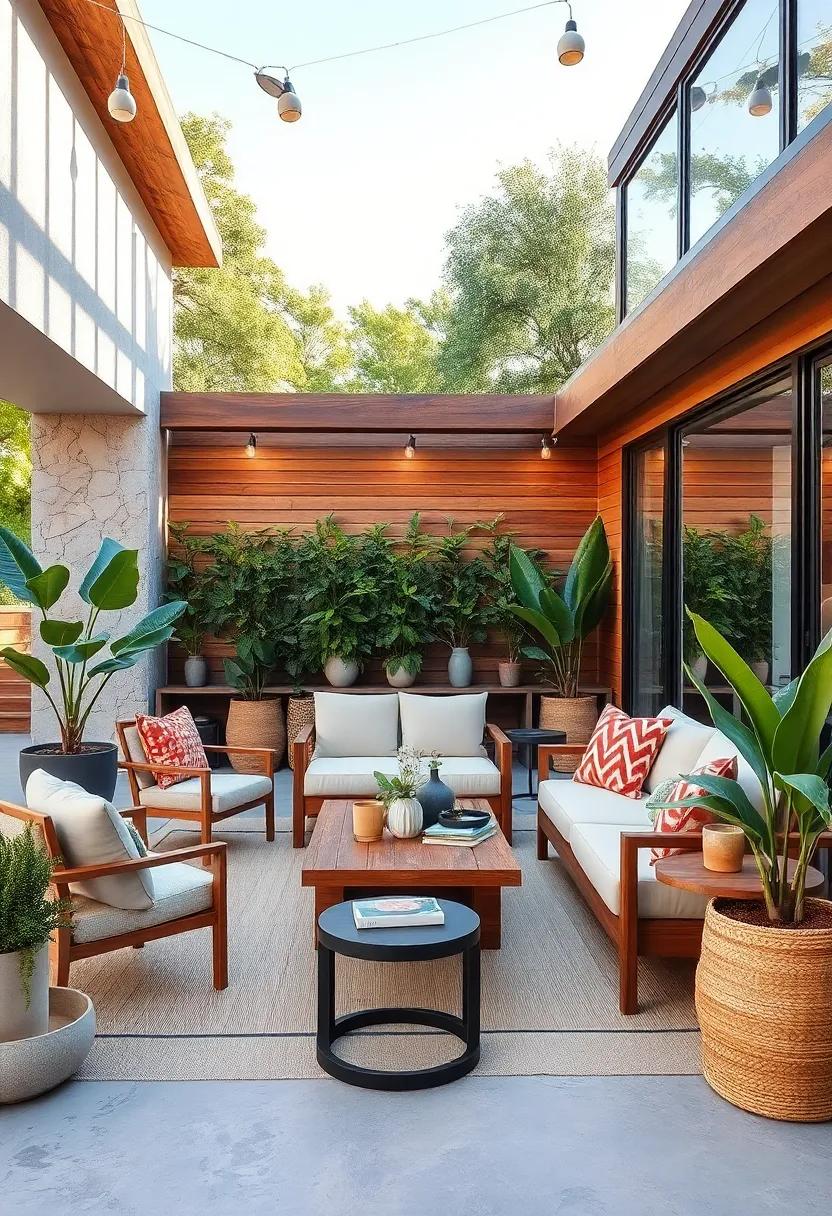
In the pursuit of a chic and minimalist aesthetic, sustainable wood options stand out as both functional and environmentally friendly. Choosing the right wood not only enhances the elegance of your space but also contributes to a healthier planet. Here are some sustainable wood choices that embody a sleek look while ensuring minimal maintenance:
- Bamboo: Rapidly renewable and incredibly versatile, bamboo adds a unique texture while being lightweight yet durable.
- Cork: Soft underfoot and naturally resistant to mold and mildew, cork provides a warm and inviting feel to any area.
- Reclaimed Wood: Rich in character and history, reclaimed wood offers a distinctive appeal that tells a story, all while reducing waste.
When considering your options, it’s also valuable to look into the treatment and finish of the wood used in your décor. Certain finishes can enhance durability and reduce the need for upkeep, keeping your chic aesthetic intact without additional work. Below is a simple comparison of some popular eco-friendly finishes that complement sustainable wood:
| Finish Type | Durability | Eco-Friendly rating |
|---|---|---|
| Natural Oil | Medium | High |
| Water-Based Polyurethane | high | Medium |
| Shellac | Low | High |
Embracing Nature with Reclaimed Wood Designs for an Effortlessly Stylish Home
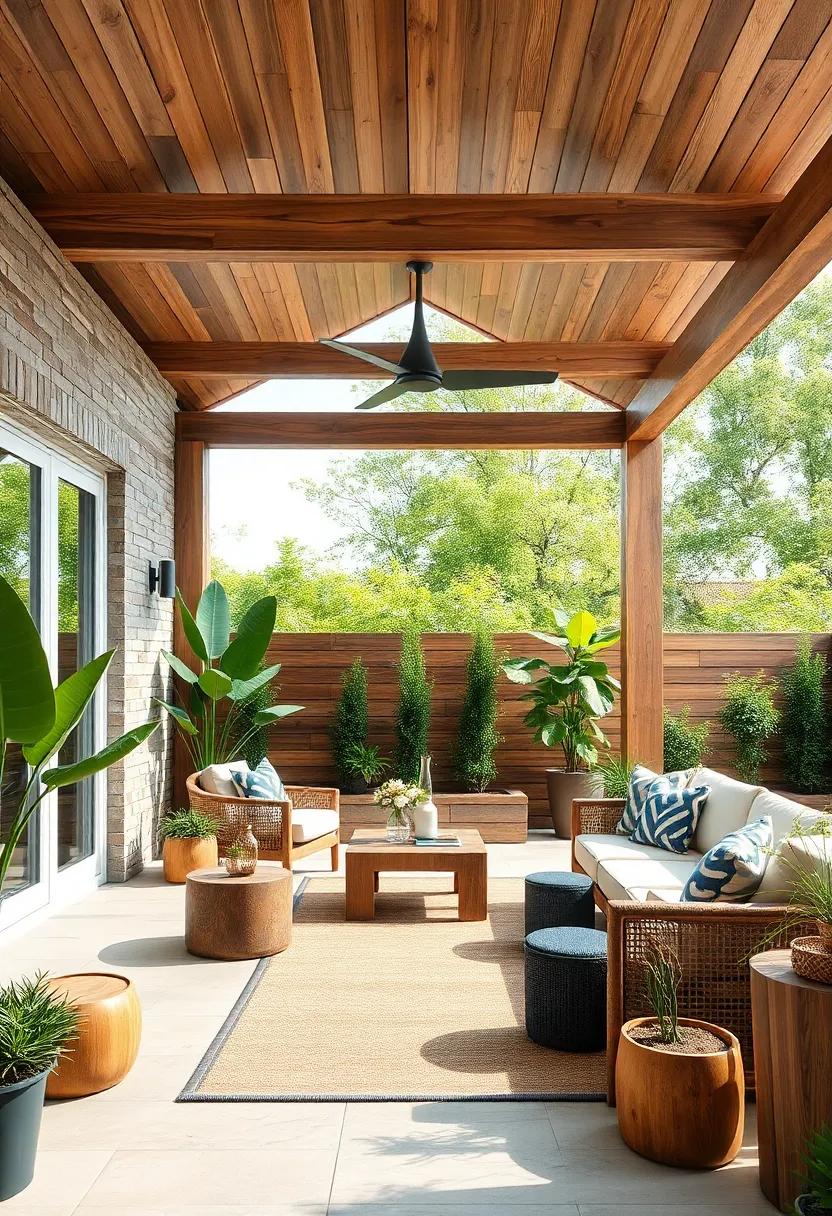
Reclaimed wood offers a unique blend of character and sustainability,inviting an effortless elegance into your home. With its rich textures, history, and natural imperfections, this material transforms spaces, creating an ambiance that feels both sophisticated and grounded. Incorporating reclaimed wood pieces into your decor allows you to embrace a style that is not only fashionable but also environmentally conscious. Consider adding items like:
- Reclaimed wood furniture – Tables, chairs, and shelves with stories to tell.
- Accent walls – Striking focal points that bring warmth and personality to any room.
- Artistic decor – Sculptures or wall art that celebrate the beauty of natural materials.
In addition to aesthetics, reclaimed wood offers a minimal maintenance choice, making it a practical choice for modern living. This durable material often requires less upkeep compared to traditional wood options, ensuring that your stylish home preserves its elegance without demanding extensive care. When choosing reclaimed wood designs, consider the types of finishes that enhance its natural beauty while providing protection against wear. Below is a quick comparison of finishes to help you make an informed choice:
| Finish Type | Durability | Maintenance Requirements |
|---|---|---|
| Oil Finish | Moderate | Annual reapplication suggested |
| Polyurethane | High | Occasional touch-ups |
| Wax Finish | Low | Frequent reapplication needed |
Timeless Elegance: Crafting Spaces with Bamboo as a Fluid Alternative
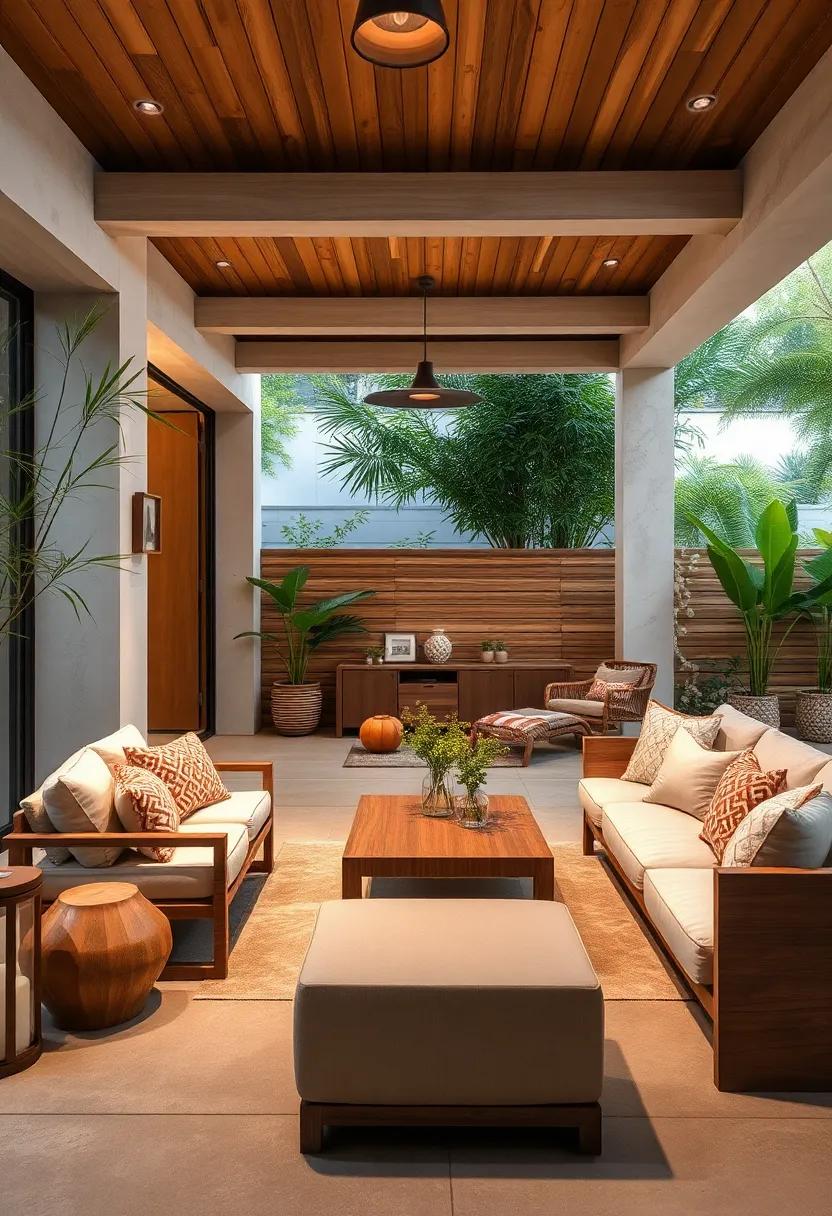
Bamboo, often celebrated for its graceful aesthetic and robust sustainability, provides a captivatingly organic alternative to traditional wood.Its natural hues and smooth textures contribute to a serene ambiance, enhancing spaces without overwhelming them. The versatility of bamboo allows it to effortlessly blend with various design themes, making it a favored choice for those seeking minimalistic yet impactful decor. Consider incorporating bamboo furniture, wall panels, or decorative accents to introduce an air of effortless sophistication to your home.
The ecological benefits of bamboo cannot be overstated. As one of the fastest-growing plants, its cultivation requires minimal resources and is less demanding on the earth, presenting a conscientious option for sustainability-minded consumers. By choosing bamboo, you are not just making a style statement but also embracing a more environmentally friendly lifestyle.Key advantages include:
- Low maintenance: Easy to clean and resistant to pests.
- durability: Stronger than many hardwoods, ensuring longevity.
- Versatile design: Suitable for various applications, from flooring to furniture.
The Allure of Composite Wood: Blending Durability with Contemporary Style
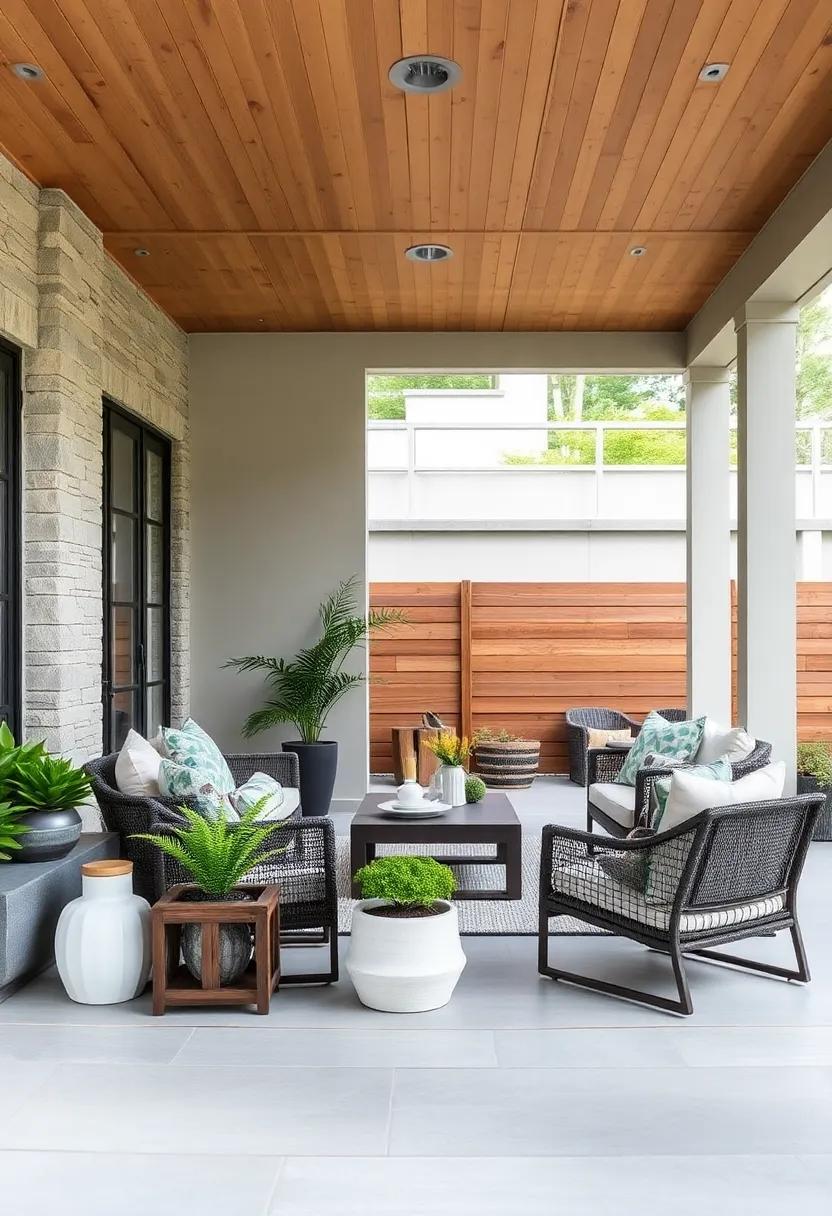
The enchanting blend of durability and charm in composite wood makes it a standout choice for modern living spaces. With its innovative materials,it offers a sleek aesthetic that aligns perfectly with any contemporary design. Unlike traditional wood, composite options resist fading, warping, and pests, providing a long-lasting beauty that requires minimal upkeep.Homeowners can choose from a wide palette of colors and textures, enhancing the beauty of their environments without the typical maintenance headaches of solid wood. The sustainable aspects of composite wood further appeal to eco-conscious designers,as it often incorporates recycled materials,contributing to a greener planet.
Despite its advanced engineering, the allure of composite wood doesn’t diminish its natural warmth and appeal. Its versatility makes it suitable for various applications, whether it be decks, fencing, or furniture.Key benefits include:
- whether Resistance: Withstands the elements without losing integrity or color.
- Easy maintenance: Requires only occasional cleaning with soap and water.
- Eco-Friendly: Utilizes recycled materials to reduce environmental impact.
- Design Adaptability: available in various styles to complement any architectural vision.
Lush Inspiration: Integrating Cork into Your Design Palette for Natural Beauty
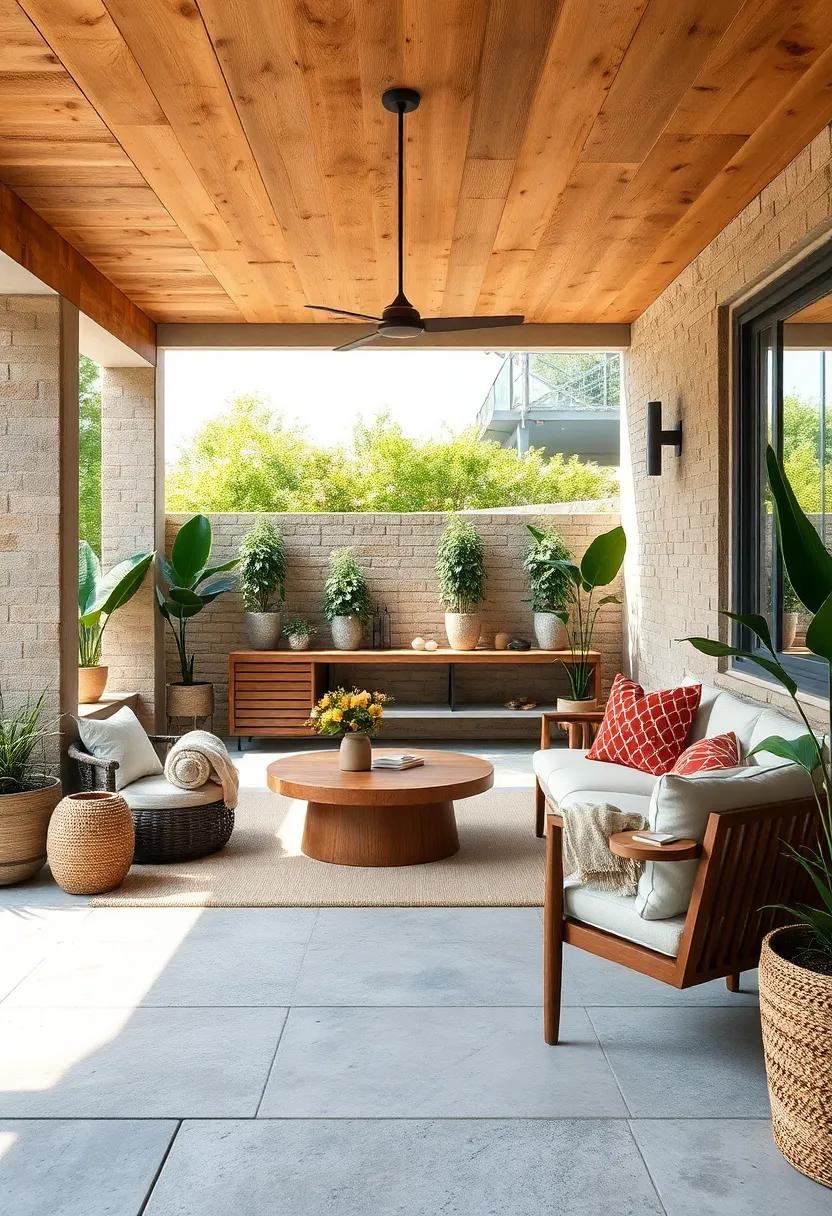
Cork, a sustainable and versatile material, brings a unique warmth and texture that can revitalise any design palette. its natural aesthetics make it an excellent choice for various applications, from flooring to wall coverings. Integrating cork allows for an effortless blend of functionality and elegance, catering to both modern and rustic themes. Consider the following benefits of incorporating cork:
- Eco-Friendly: Sourced from renewable cork oak trees without harm.
- Sound Insulation: Provides excellent acoustic properties, perfect for creating tranquil spaces.
- durability: High resistance to wear and tear, suitable for high-traffic areas.
- Hypoallergenic: Naturally resistant to mold and dust, promoting healthier environments.
When it comes to design applications, cork’s versatility extends beyond flooring. It can be used creatively as decorative wall panels,unique furniture pieces,or even as vibrant artwork. here’s a quick comparison of cork with other wood alternatives that offer minimal maintenance yet deliver a distinct charm:
| Material | Style | Maintenance level | Benefits |
|---|---|---|---|
| Cork | Warm & Organic | Low | Eco-friendly, soundproofing |
| Bamboo | Modern & Sleek | Low | Fast-growing, resilient |
| Reclaimed Wood | Rustic & Timeless | Medium | Unique character, sustainable |
Eco-Friendly Elegance: Utilizing Thermally Modified Wood for a Unique Touch
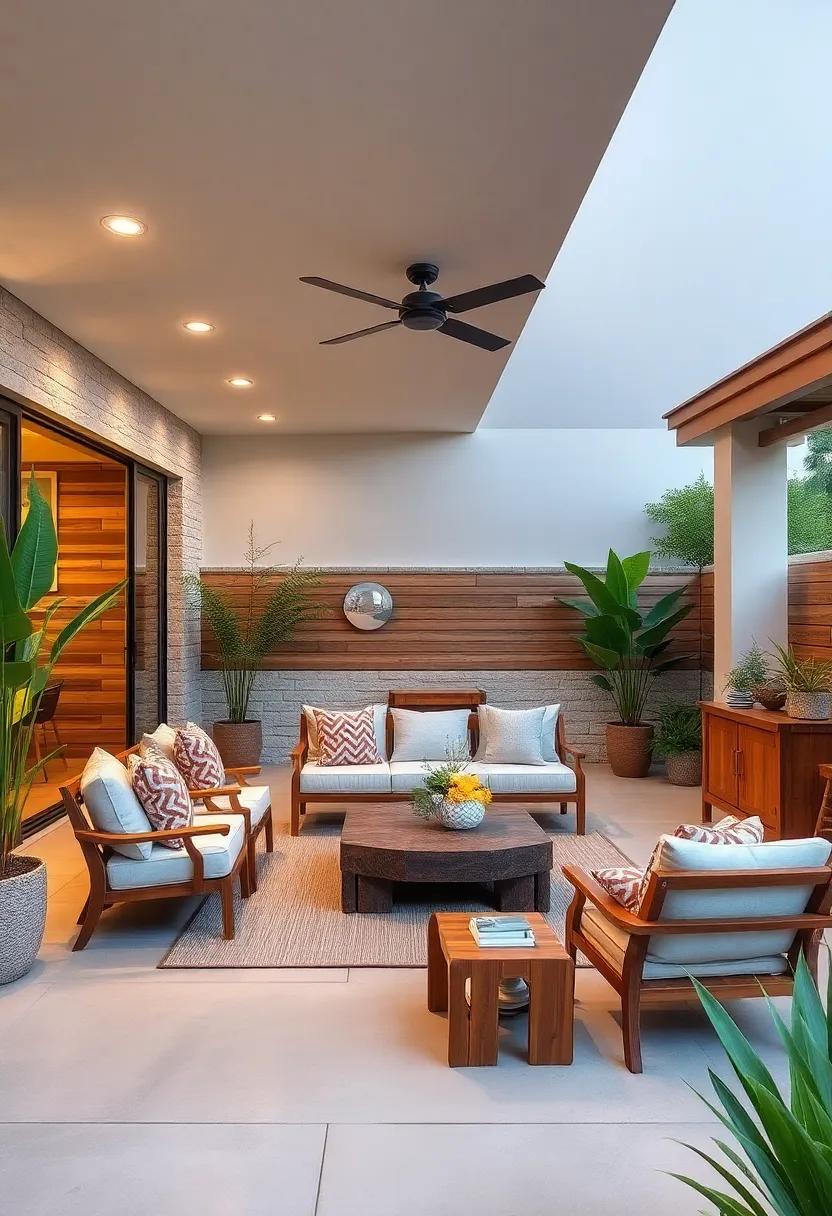
In the pursuit of sophistication paired with sustainability, thermally modified wood stands out as a remarkable option. This innovative process enhances the natural properties of wood, making it more durable and resistant to moisture, insects, and decay without the use of harmful chemicals. The result is a product that not only exudes timeless beauty but also aligns with eco-conscious living. Homeowners seeking alternatives to traditional hardwood can embrace the rich, deep tones of this wood, which are achieved through a unique heat treatment method that intensifies its natural grain and color.
Choosing thermally modified wood translates to a range of practical benefits beyond its aesthetic appeal. It requires minimal maintenance compared to untreated wood, allowing for effortless upkeep in busy lifestyles. The durability of this material means less frequent replacements, contributing to sustainable practices. Here are some advantages of utilizing this eco-friendly choice:
- Long-lasting performance due to enhanced resistance.
- Natural aesthetics that harmonize with various design styles.
- Reduced maintenance needs, saving time and resources.
- Environmentally friendly production processes.
Sculpting Serenity: Designing with Engineered Wood for Seamless Harmony
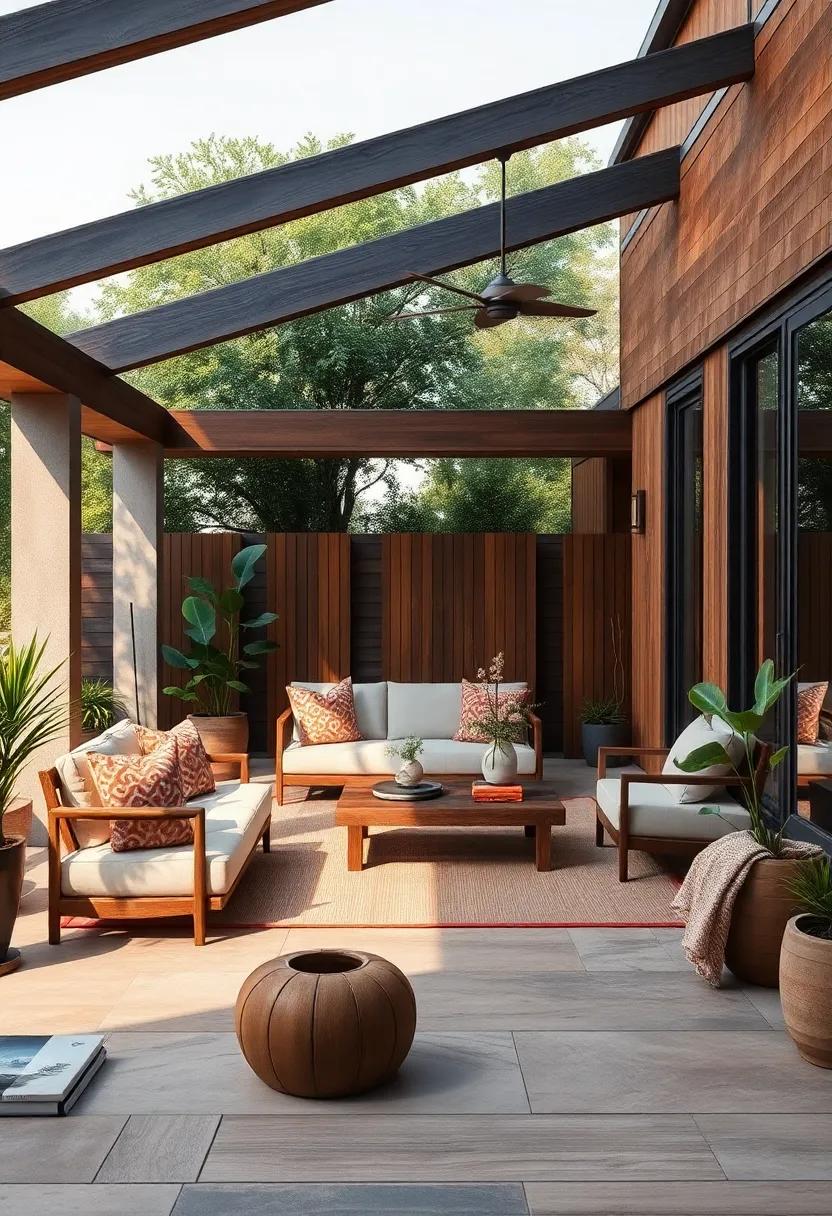
Embracing engineered wood in your living spaces promotes a sense of calm and sophistication, allowing natural beauty to thrive with minimal effort. With design versatility,you can explore various finishes and styles that harmonize with your aesthetic vision. This material not only provides a sustainable alternative but also offers great durability and resistance against the rigors of everyday life. Its inherent warmth complements a variety of decor, ensuring that your home remains inviting and serene.
Incorporating engineered wood into your design scheme supports a seamless blend of functionality and elegance, making it easier to maintain a beautiful habitat. Consider these benefits:
- Low Maintenance: Less time spent on upkeep means more time enjoying your space.
- Eco-Friendly: Sustainable sourcing processes minimize the environmental footprint.
- Consistent Quality: Engineered wood offers uniformity in appearance and performance.
| Feature | Engineered Wood | Traditional Wood |
|---|---|---|
| Cost | typically Lower | Generally Higher |
| Durability | Highly Durable | Varies by Species |
| Environmental Impact | Sustainable Options Available | Depends on Sourcing |
Colourful Character: Adding Warmth with Plywood in Modern Interiors
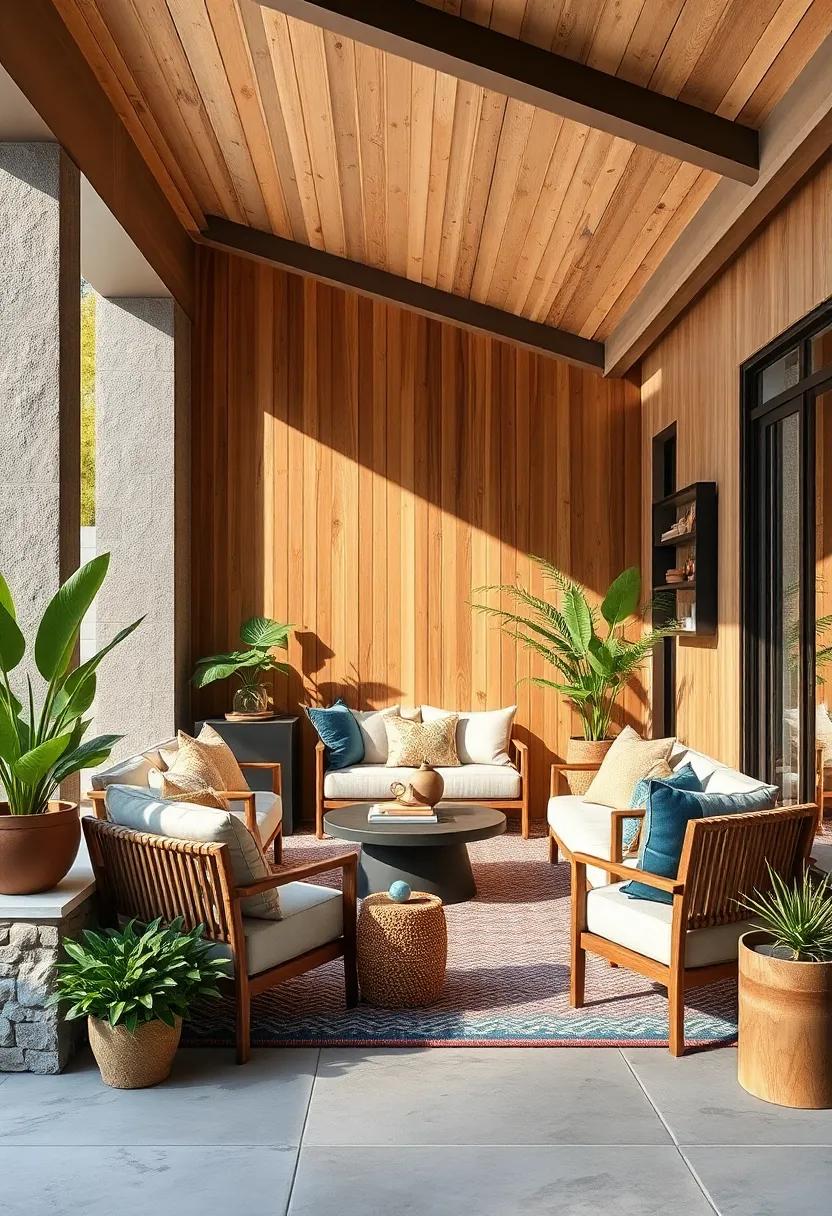
Plywood has emerged as a versatile and vibrant component in modern interiors, effortlessly introducing warmth and character where it’s needed most. With its unique grain patterns and natural hues, plywood serves as an ideal backdrop for a range of aesthetic styles, from contemporary minimalism to rustic charm.Consider these design elements when incorporating plywood into your living spaces:
- Accent Walls: Use a bold veneer to create a striking feature wall that draws the eye and adds depth.
- Furniture Pieces: Opt for custom furniture made from plywood, such as coffee tables or shelving, that accentuates its organic beauty.
- Layering Textures: Combine plywood with metals and textiles to achieve a warm, inviting atmosphere.
Maintaining the integrity of plywood in your home doesn’t have to be labor-intensive. The beauty of this wood alternative lies in its resilience. with a simple routine of dusting and occasional polishing, you can preserve its allure.Moreover, explore these practical tips to enhance its longevity:
| Tip | Description |
|---|---|
| Regular Cleaning | Use a soft, damp cloth to remove dust and stains without damaging the surface. |
| Moisture Control | Avoid excessive moisture which can warp the material; use coasters and mats. |
| Protective Finishes | Apply natural oils or eco-friendly sealants to enhance durability and protect the wood. |
The Whisper of Grain: Celebrating the Texture of Smooth Sapele Wood
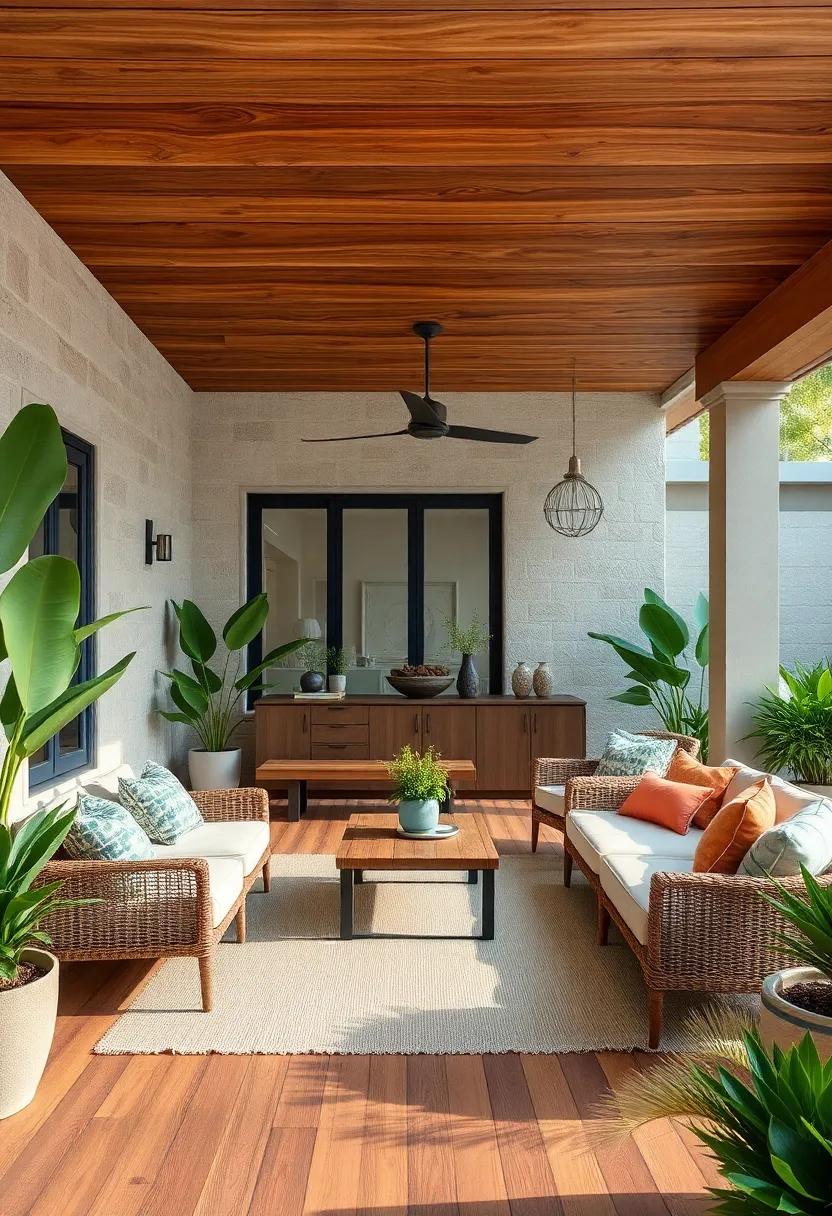
The allure of Sapele wood lies not only in its stunning visual appeal but also in the rich texture that defines its character. The grain of Sapele is often described as a dance of light and shadow, showcasing a beautiful interweave of patterns that change with every angle, enhancing the natural beauty of your space. Its smooth surface invites touch, offering a tactile experience that is both soothing and inviting. As a sustainable alternative, Sapele provides the perfect balance of elegance and sustainability, making it an ideal choice for contemporary interiors.
When selecting Sapele for your projects, consider its remarkable attributes:
- Durability: With proper finishing, Sapele resists wear and tear, making it suitable for high-traffic areas.
- Maintenance: Its low maintenance nature makes it a favorite among those seeking effortless elegance.
- Versatility: Sapele adapts seamlessly to various designs, from modern minimalist to classic ensembles.
In addition, here’s a quick comparison of Sapele with other commonly used woods:
| Wood Type | texture | Maintenance | Durability |
|---|---|---|---|
| Sapele | Smooth, interlocked | Low | High |
| Oak | Rough, open-grained | Moderate | Very High |
| Pine | smooth, fine-grained | Low | Moderate |
Creating Cavernous Comfort: The Versatile Appeal of Poplar in Interior Spaces
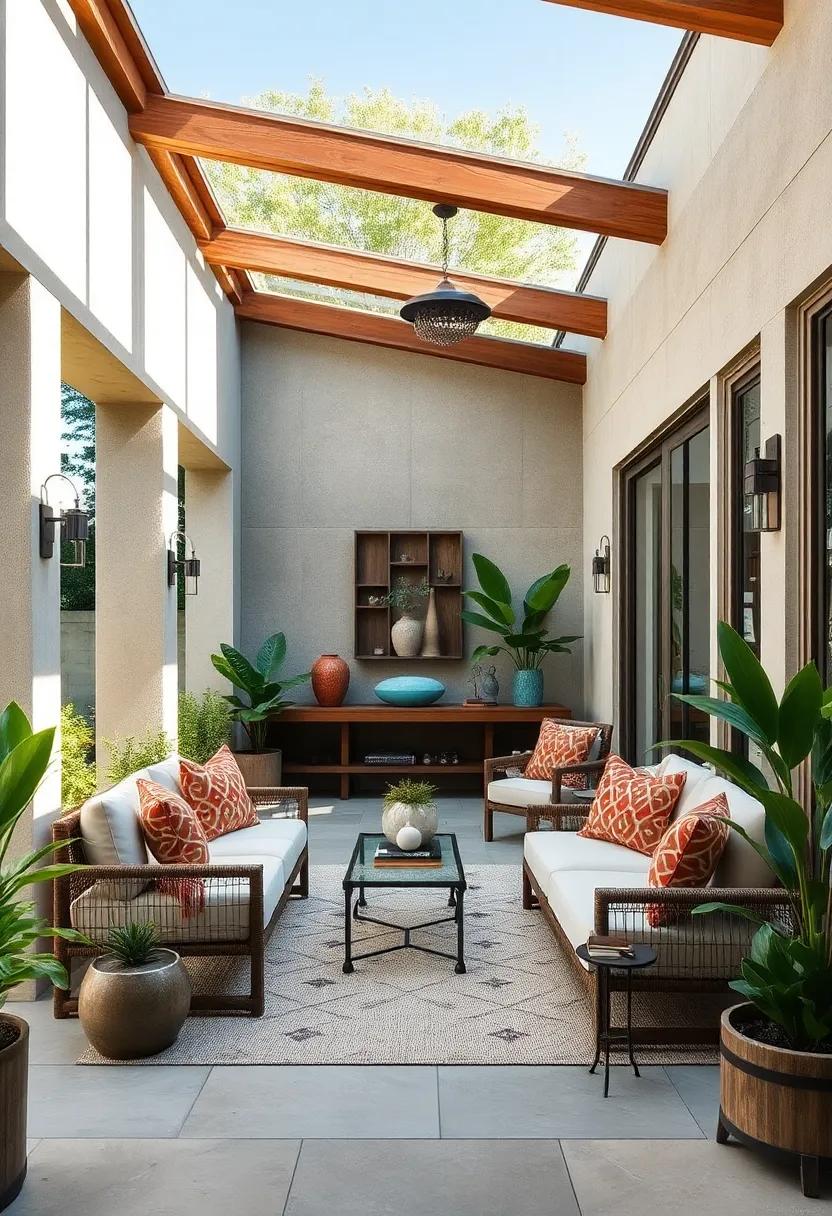
Poplar wood stands out as an excellent choice for interior design, offering a balance between aesthetic appeal and practicality. Its smooth texture and fine grain make it suitable for a variety of applications,from cabinetry to decorative accents. The versatility of poplar allows it to seamlessly integrate into different styles, including minimalist, rustic, and modern designs. Consider incorporating poplar for:
- Cabinetry: Its uniform appearance provides a sleek look that can enhance kitchen aesthetics.
- wall Paneling: Poplar can create warmth and depth, contributing to an inviting atmosphere.
- Furniture: Lightweight yet sturdy,it’s perfect for both functional and statement pieces.
In addition to its visual versatility,poplar is incredibly easy to maintain,making it a practical choice for busy households.It resists warping and cracking, retaining its integrity in various environmental conditions. With minimal finishing requirements, poplar can be painted or stained to match any decor, ensuring that it remains a dynamic element in your space. Here’s a quick comparison of poplar’s characteristics with other wood types:
| Wood Type | Cost | Maintenance level | Aesthetic Appeal |
|---|---|---|---|
| Poplar | Affordable | Low | Sleek |
| Oak | Moderate | Medium | Classic |
| Maple | Expensive | Medium | Elegant |
Natural and Refined: Synergizing Cedar with minimalistic Decor
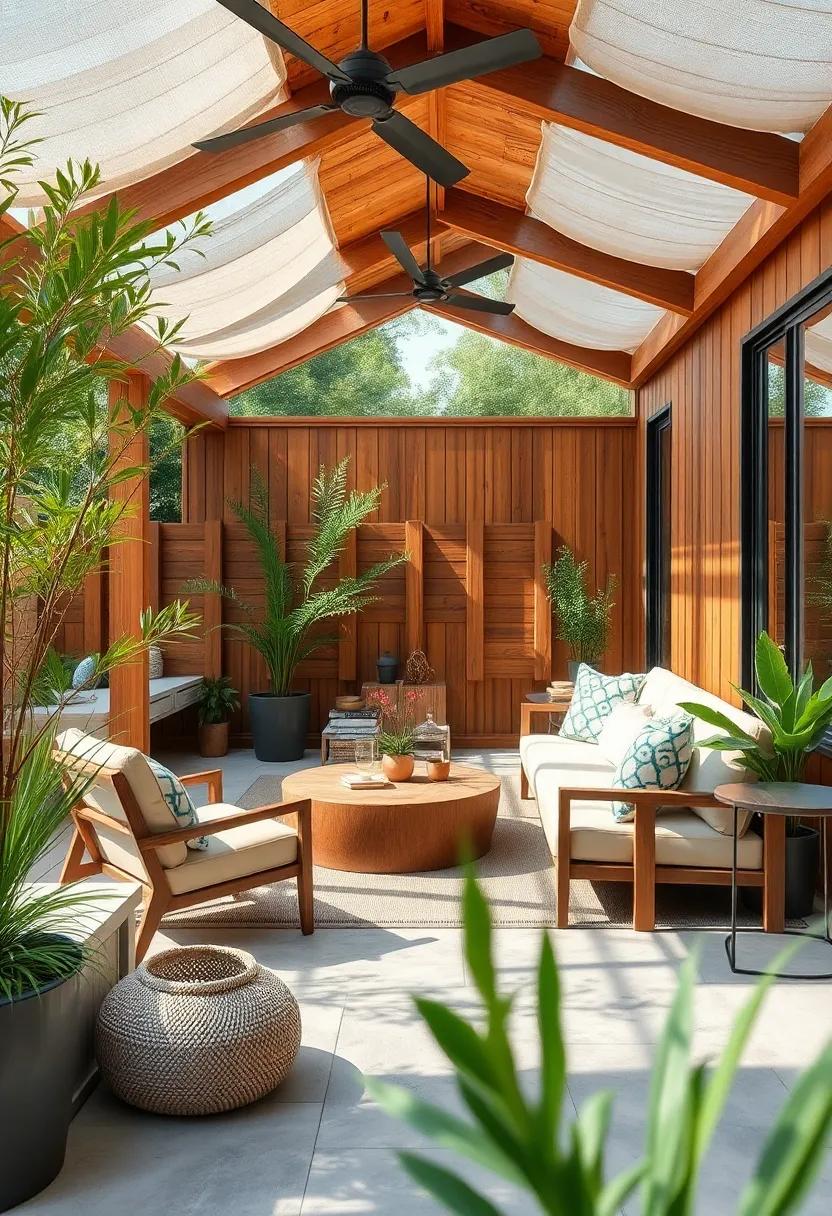
Incorporating the rich, earthy tones of cedar into minimalistic decor creates a harmonious balance between natural beauty and modern simplicity. Cedar’s warm hues and distinctive grain patterns act as a focal point without overwhelming a space, making it ideal for contemporary settings. Its inherent resistance to decay and insects means that it not only enhances aesthetic appeal but also offers practicality, aligning perfectly with the principles of minimalist design. Consider these elements to amplify the synergy between cedar and minimalism:
- Use natural finishes: Opt for clear or matte finishes to maintain the wood’s authenticity while allowing its features to shine.
- Incorporate multifunctional furniture: Choose cedar pieces that serve multiple purposes, such as benches or storage that blend form and function.
- Accessorize thoughtfully: Keep decor elements simple and only add a few complementary accessories that echo the wood’s natural charm.
The blend of cedar with minimalistic decor can also extend to practical applications like cabinetry and flooring, creating continuity throughout your space. Utilizing a consistent color palette enhances the soothing atmosphere provided by cedar, allowing your home to feel both grounded and inviting. Here’s how cedar’s characteristics align with minimalism:
| Cedar characteristics | Minimalist Design Benefits |
|---|---|
| Durability | Long-lasting solutions reduce clutter from replacements. |
| Natural Aroma | Creates a calming ambiance without additional fragrances. |
| aesthetic Versatility | seamlessly integrates into various design styles. |
Balancing Style and Function: The Case for Laminated Wood surfaces
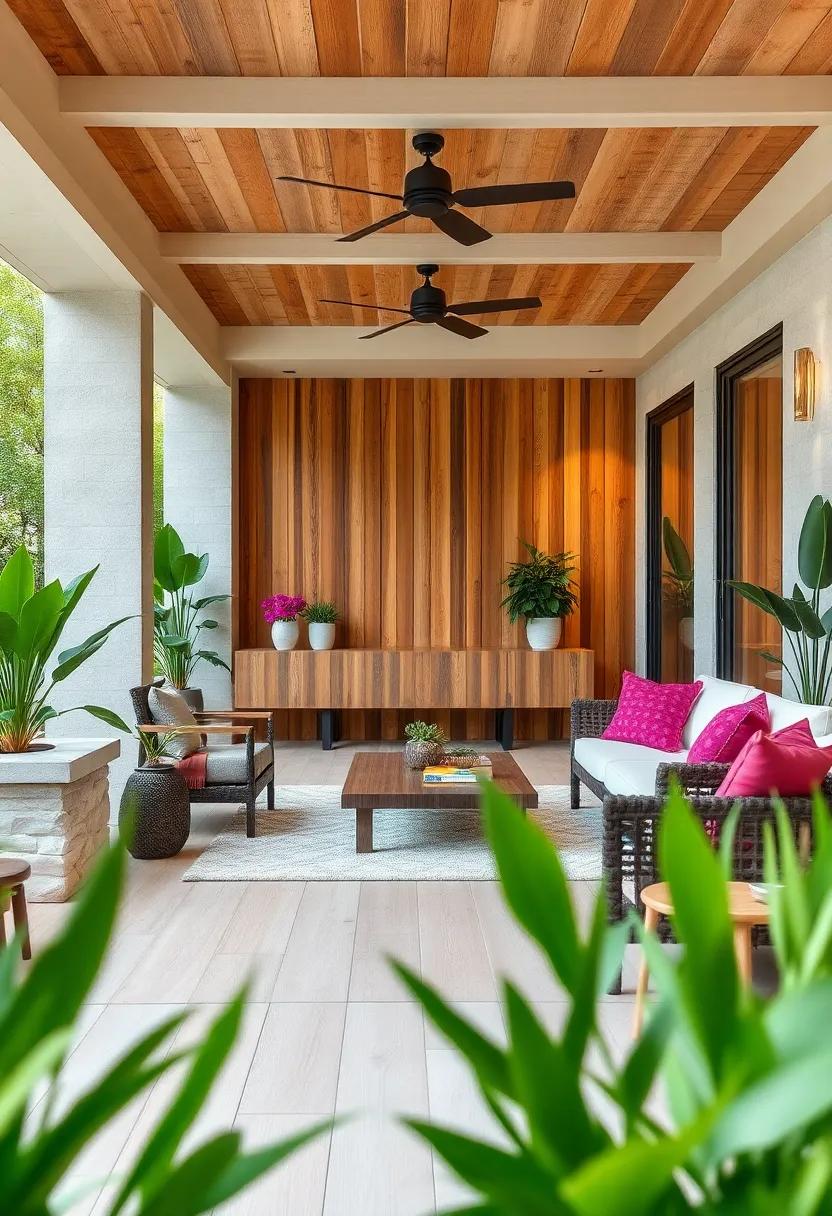
Laminated wood surfaces offer a harmonious blend of aesthetic appeal and practicality, making them an ideal choice for modern interiors. These surfaces boast a stunning array of finishes that mimic the look of natural wood, allowing homeowners to enjoy the warmth and charm of wood without the hefty maintenance costs. Some of the standout features of laminated wood include:
- Durability: Resistant to scratches and moisture,ensuring longevity.
- Easy Cleaning: A simple wipe down is all that’s required to maintain their beauty.
- Design Versatility: Available in numerous styles, from rustic to contemporary.
Incorporating laminated wood into your living space not only enhances its aesthetic but also supports a sustainable lifestyle. Laminated wood products utilize less natural timber,reducing the strain on forest resources. Additionally, these surfaces can be engineered to meet specific performance needs. Consider the benefits summarized in the table below:
| Feature | Benefit |
|---|---|
| Wear Resistance | withstands heavy foot traffic and daily use. |
| Color Retention | Maintains vibrancy without fading over time. |
| Eco-Friendly Production | Utilizes recycled materials and sustainable practices. |
A Symphony of Shapes: Designing with Distressed Timber for Rustic Charm
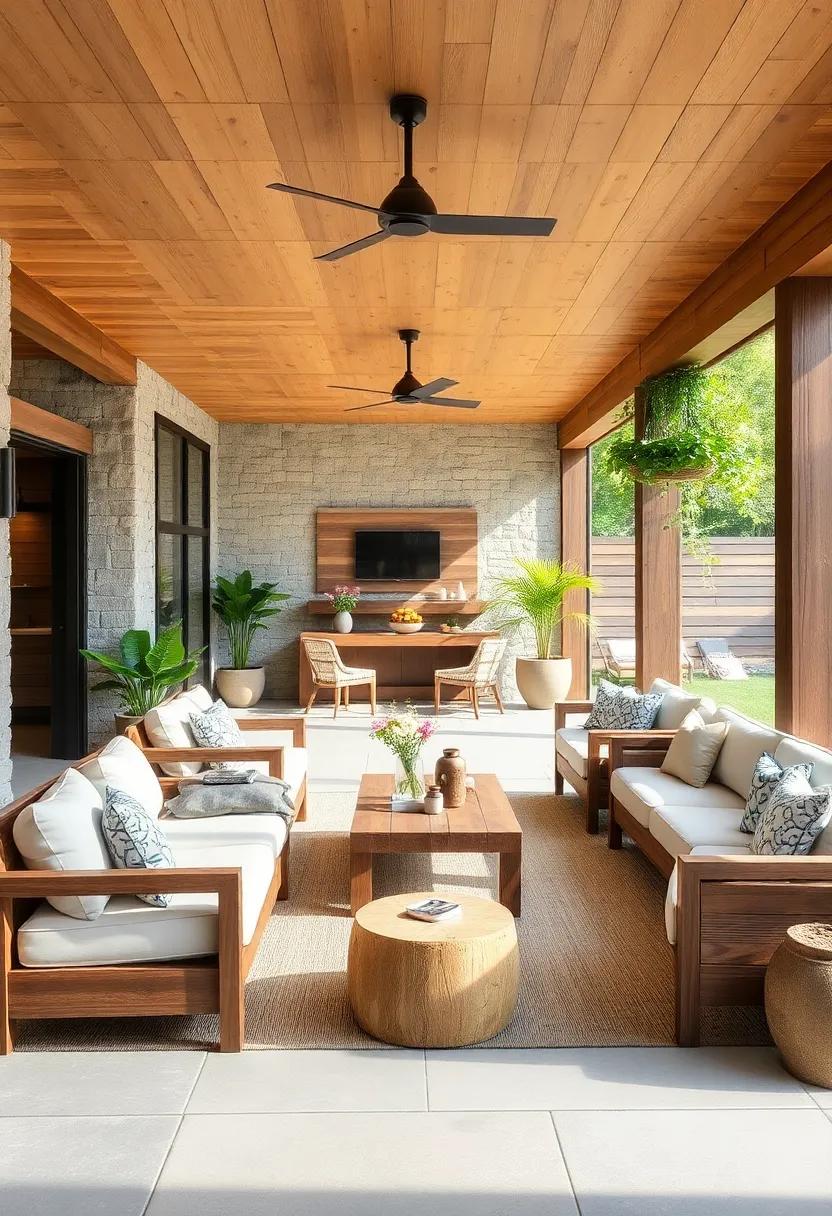
Incorporating distressed timber into design elevates spaces with a unique rustic charm that embraces imperfections. The aged texture and varying hues of worn wood tell stories of time and evoke a sense of warmth. Consider these captivating features:
- Natural Aesthetics: Reinforces a connection to nature, enhancing both indoor and outdoor environments.
- Versatility: Complements a range of styles—from farmhouse to modern chic—seamlessly blending with various textures and colors.
- Timeless Appeal: The allure of distressed finishes ensures longevity in design trends, providing enduring elegance.
A harmonious blend of function and form, distressed timber also comes with the benefit of low maintenance, allowing its beauty to shine without demanding constant attention. The following table summarizes popular timber alternatives that enhance rustic designs while promoting an effortless lifestyle:
| Timber Type | Maintenance Level | Rustic Appeal |
|---|---|---|
| Reclaimed Wood | Minimal | High |
| Thermally Modified Timber | Low | Medium |
| Composite Wood | Very Low | Medium |
By selecting these alternatives, you not only create stunning spaces but also ensure they remain inviting with much less effort. The striking contrasts and rich narratives embodied in distressed timber make it an excellent choice for anyone seeking to infuse character into their living spaces while minimizing the upkeep typically associated with wood materials.
Revitalizing Spaces: The Subtle Beauty of Acacia in Contemporary settings
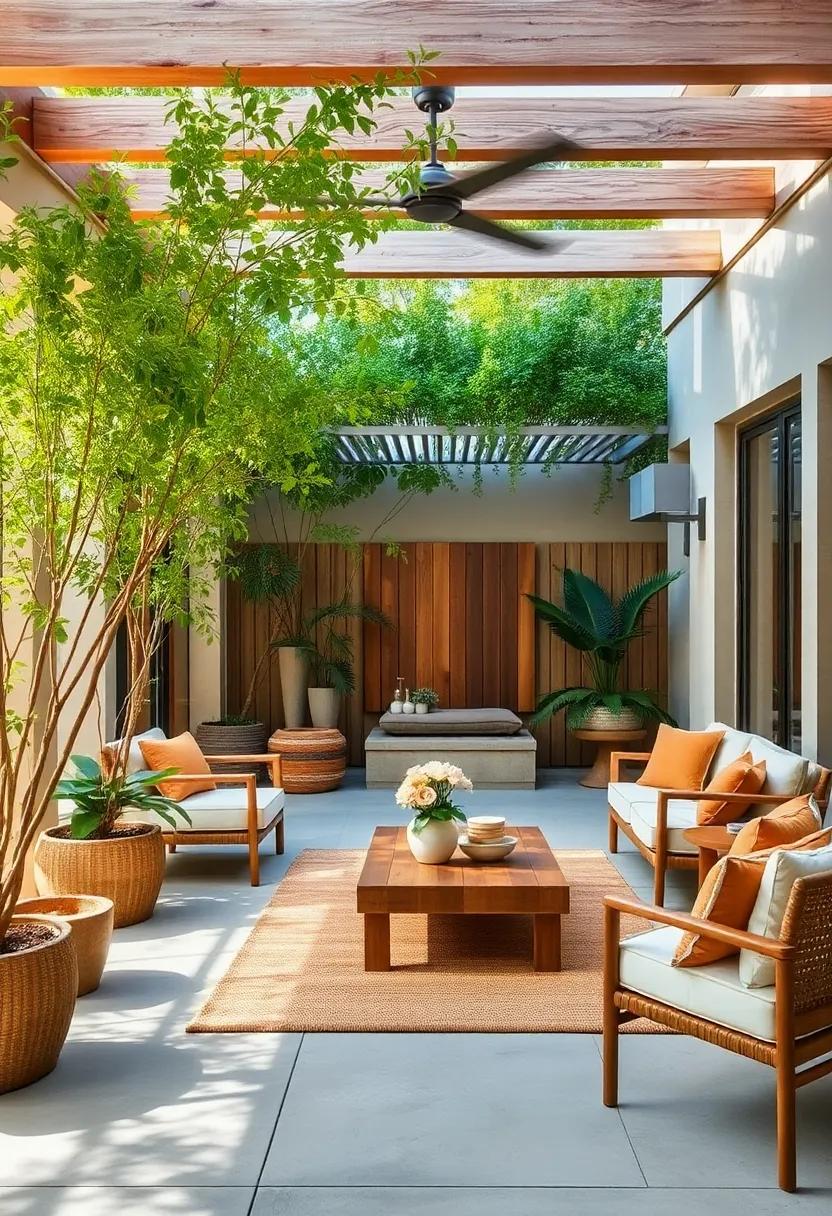
Acacia wood, known for its rich hues and striking grain patterns, brings a unique charm to contemporary spaces while minimizing maintenance needs. its natural resistance to moisture and pests makes it an ideal choice for both indoor and outdoor applications. Incorporating acacia into your design can create a seamless flow that emphasizes minimalism yet exudes warmth.Consider accentuating the textural contrasts in your space by pairing acacia with light-colored fabrics or sleek modern furnishings, allowing the wood’s beauty to shine through. Key features of acacia that contribute to its aesthetic appeal include:
- Varied Color palette: Ranges from golden yellows to deep browns.
- Durability: High resistance to wear, making it perfect for high-traffic areas.
- Distinct Grain Patterns: Each piece is unique, adding character to any setting.
Utilizing acacia in furniture, flooring, or decorative elements can serve as an anchor for minimalist design without overwhelming the space. from stunning tabletops to elegant cabinetry, acacia maintains a sophisticated silhouette, allowing for versatility across different design styles.Below is a comparison of acacia with other popular wood alternatives for effortless elegance:
| Wood Type | Color Variations | Durability | Maintenance |
|---|---|---|---|
| Acacia | Golden to dark brown | High | Low |
| Bamboo | Light to medium brown | Medium | medium |
| Maple | Light cream to reddish brown | High | Medium |
Dancing with Shadows: Broadening Spaces with Light Oak Features
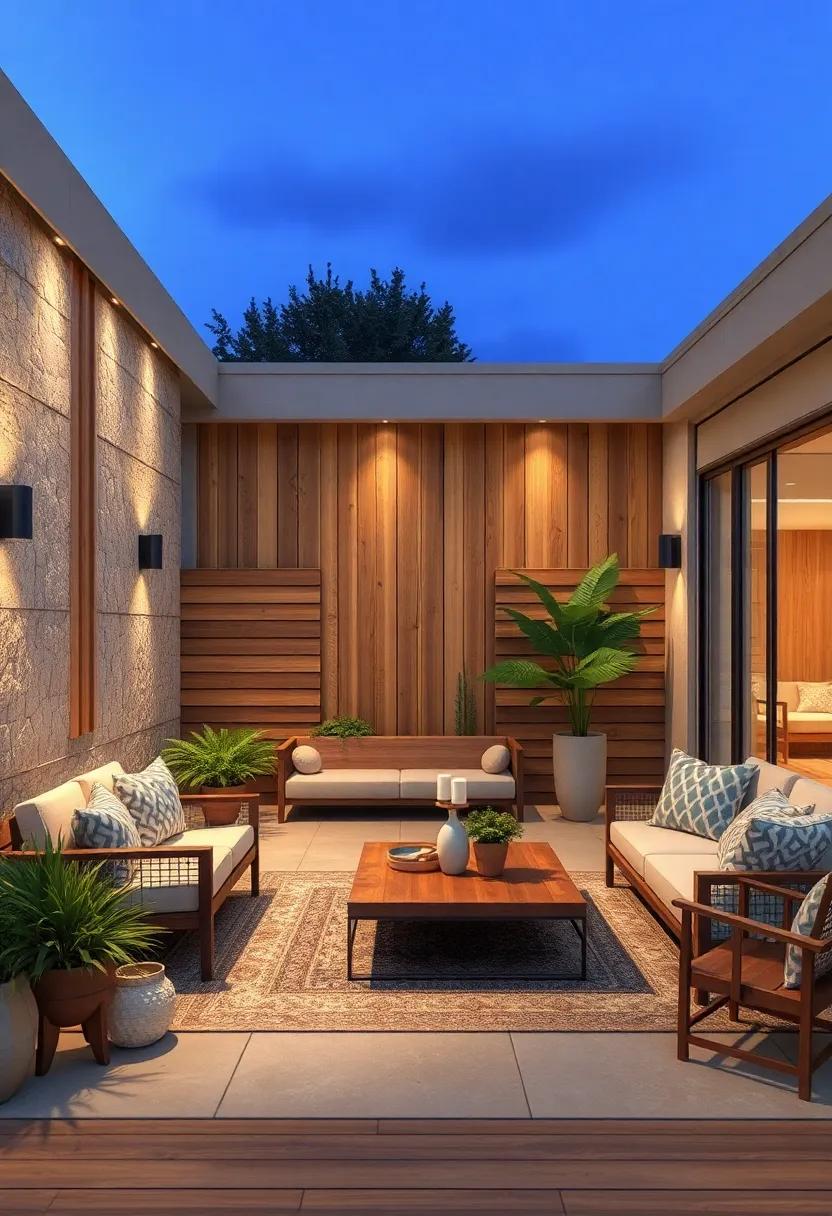
Incorporating light oak features into your home design creates an open atmosphere where the dance of shadows enhances every corner. This sophisticated wood alternative not only offers aesthetic appeal but also practical benefits such as durability and low maintenance. The natural grain and soft blonde hues of light oak beautifully reflect natural light, making rooms feel larger and more connected to nature. when juxtaposed with deeper shades or contrasting textures, light oak serves as a grounding element that bridges different design elements seamlessly.
To maximize the effect of light oak, consider these key features:
- Flooring: Light oak flooring provides a clean canvas that complements any decor style, facilitating a timeless elegance.
- Cabinetry: Using light oak cabinetry in kitchens and bathrooms introduces warmth while remaining easy to clean and maintain.
- Accent furniture: Light oak tables or chairs can serve as anchor pieces in a minimalist setting, creating depth without overwhelming the space.
| Feature | Benefit |
|---|---|
| Durability | Resistant to wear and tear, lasting for years. |
| Low Maintenance | Requires minimal upkeep; easy to clean. |
| Versatility | Fits various design styles, from rustic to modern. |
Crafting Calm: The Aesthetic of Lightly Finished Wood in Relaxed Spaces
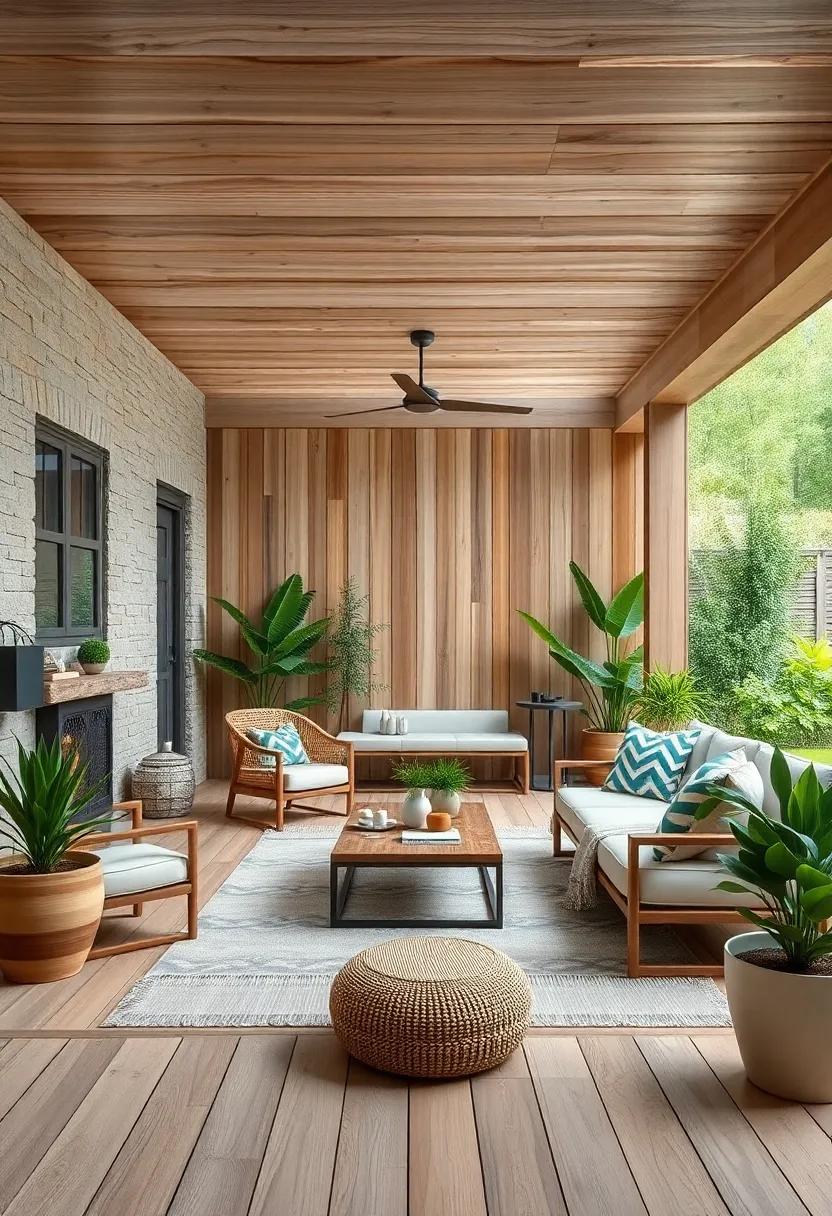
In an age where the fast pace of life often overshadows moments of tranquility, lightly finished wood emerges as a beacon of calmness in our living spaces. Its soft, muted tones create a seamless connection with nature, inviting a sense of serenity into even the busiest of homes. The subtle grain patterns and warm hues foster an inviting atmosphere, transforming any area into a sanctuary for relaxation. Utilizing this organic material thoughtfully can enhance the overall aesthetic of a room while ensuring minimal maintenance, making it a preferred choice for those seeking effortless beauty.
This understated elegance can be further amplified by strategically choosing furniture and decor accentuated by lightly finished wood. When designing a relaxed space, consider integrating elements that complement this theme, such as:
- Neutral textiles: Soft linens and cottons blend harmoniously with wood surfaces.
- Natural greenery: Houseplants introduce life and energy without overwhelming the space.
- Ambient lighting: Soft, warm light enhances the wood’s natural appeal.
With a focus on simplicity and functionality, homes can embody a tranquil vibe that supports a peaceful lifestyle, providing the perfect backdrop for unwinding after a long day.
Awakening warmth: The Allure of Chestnut as a Minimalist material
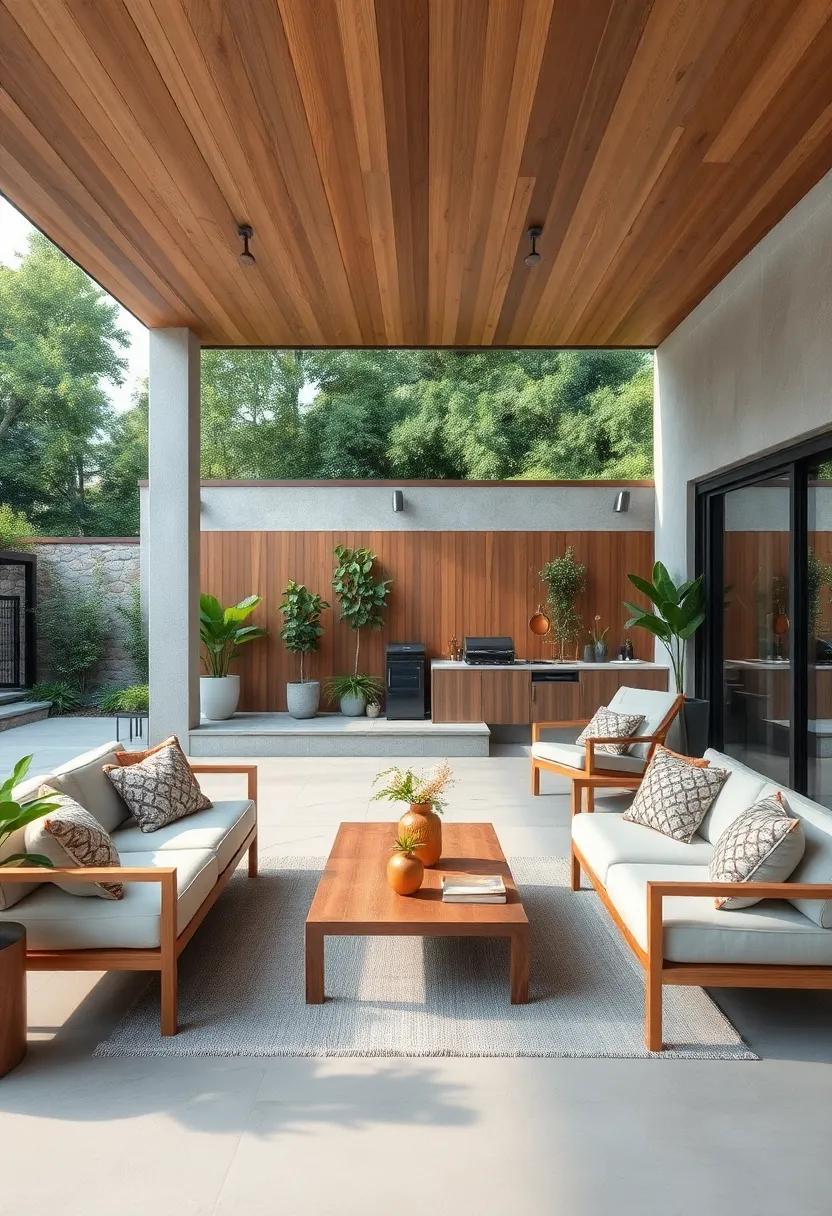
Chestnut wood captivates with its warm hues and subtle grain, reflecting a natural beauty that perfectly aligns with minimalist aesthetics. The soft, rich tones add a depth to spaces without overwhelming them, creating a calming atmosphere that encourages relaxation. Integrating chestnut into your design allows for seamless blending with various decor styles, from contemporary to rustic. Its durability adds practicality to beauty, ensuring that each piece not only looks exquisite but can also withstand the test of time.
Along with its aesthetic appeal, chestnut’s minimal maintenance requirements make it an ideal choice for those seeking effortless elegance. Consider the following benefits of this versatile wood:
- Natural Resistance: Resistant to decay and insects, requiring fewer treatments.
- Easy to Clean: Simple maintenance involves regular dusting and occasional damp wiping.
- Sustainability: Sourced from responsible forestry practices, it’s an eco-friendly choice.
With its combination of beauty, durability, and low upkeep, chestnut stands out as a premium material that encapsulates the essence of minimalist living—where every element serves a purpose while maintaining an inviting warmth.
Unified by Nature: Combining Different Wood Types for Cohesive Design
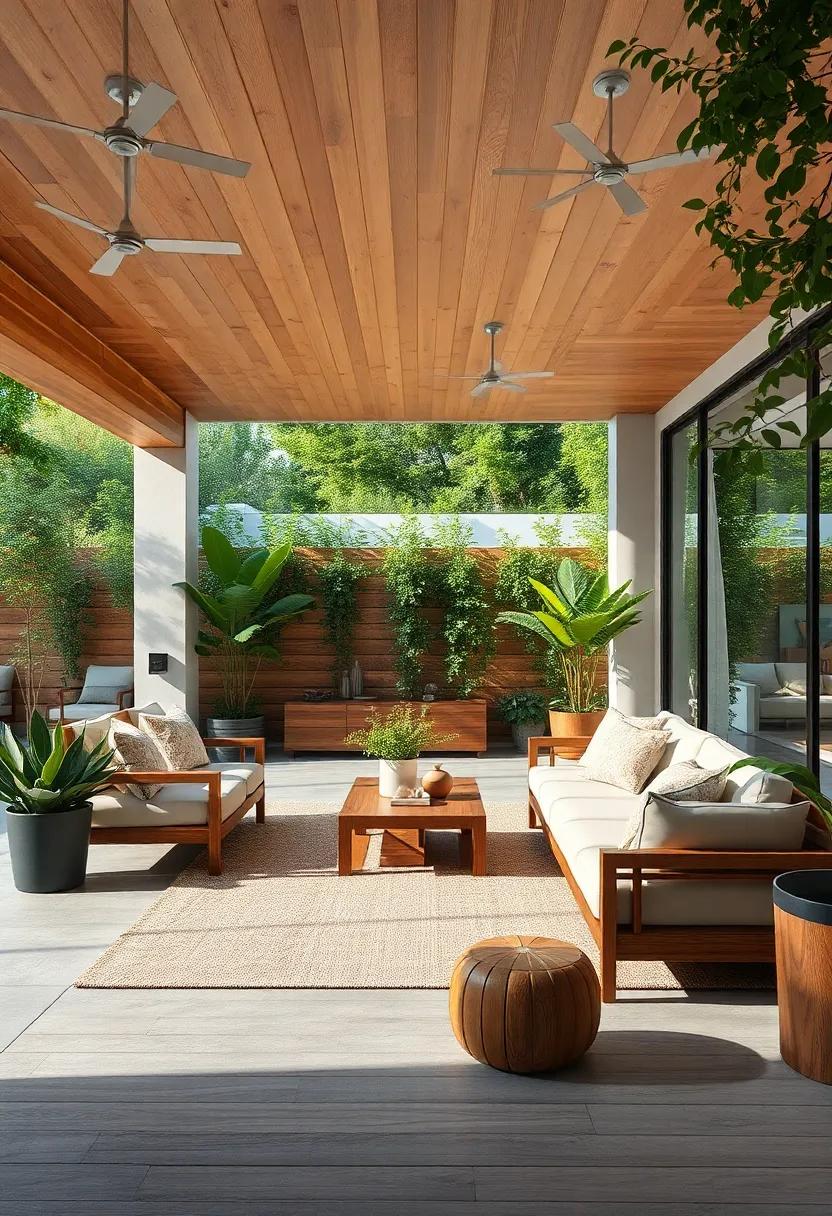
Choosing to fuse different wood types in your designs creates a visually appealing and harmonious atmosphere that reflects warmth and sophistication. By selecting materials that complement one another in both color and texture, you can achieve a cohesive look that elevates your space without veering into chaos. Consider options such as rich walnut contrasted with lighter maple or sleek bamboo paired with rustic oak.Each combination tells a unique story while maintaining a unified aesthetic, enhancing the overall elegance of your environment.
To facilitate the most seamless design experience, pay attention to the grain patterns and color tones of the woods you choose. As an example, combining smooth, straight-grained woods with those that have a more pronounced texture can create a delightful visual contrast that draws the eye. When integrating multiple wood types, it can also be helpful to think in terms of functional zones. Here are some factors to consider:
- Contrast: Balancing dark and light shades for depth.
- Grain Variation: Mixing fine and coarse grains for added richness.
- Finish Consistency: Ensuring similar finishes on all woods enhances cohesiveness.
Bespoke Furniture: Unveiling the Artistic Potential of Exotic Woods
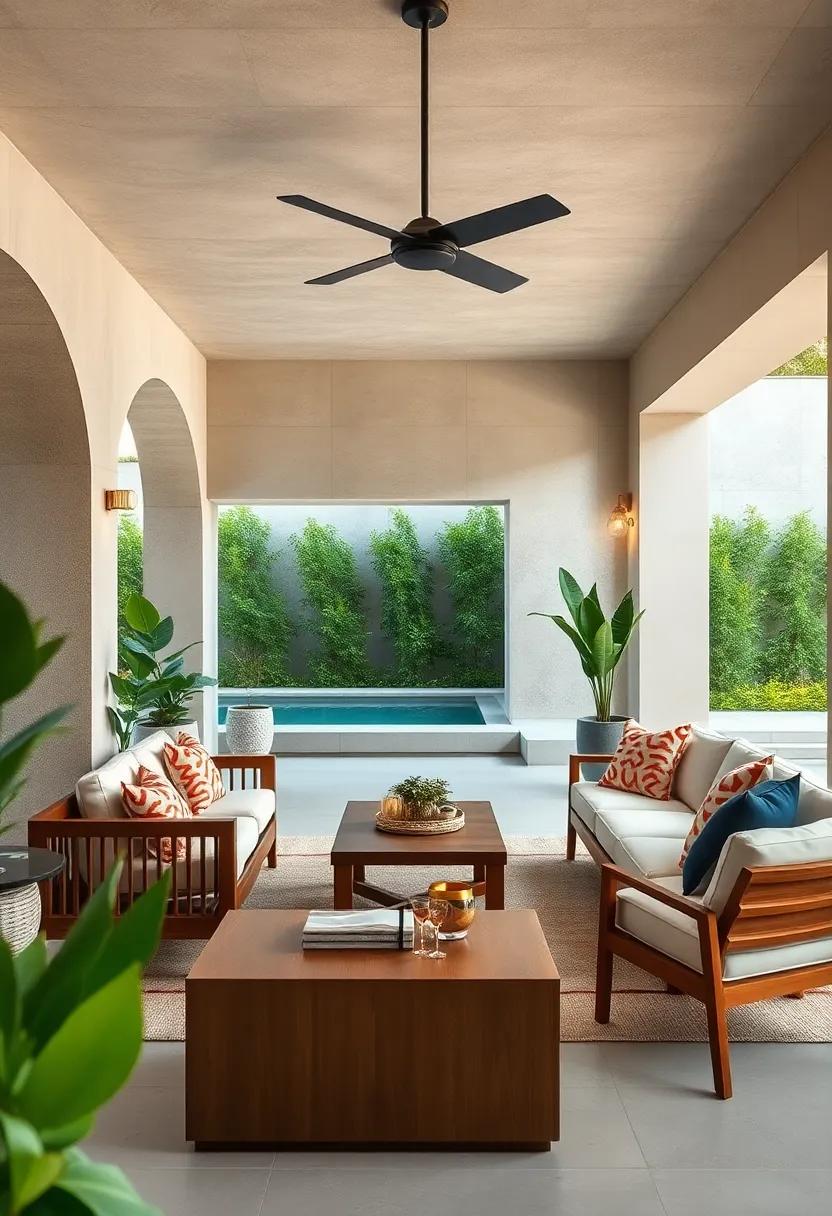
Discovering the allure of bespoke furniture made from exotic woods unveils a world where artistry meets functionality. These unique materials not only present a visual feast but also introduce unmatched durability and resilience. some of these stunning woods include:
- teak - Known for its water resistance and natural oils, making it perfect for both indoor and outdoor furniture.
- Mahogany – Celebrated for its deep color and fine grain, it adds a sense of luxury to any space.
- Walnut – With its rich tones and excellent workability, walnut is ideal for intricate designs.
- Ebony – Renowned for its density and dark hue, it serves as a striking contrast in modern furniture design.
Selecting the right wood not only elevates the aesthetic appeal but also ensures minimal maintenance, allowing homeowners to enjoy their elegant creations without the burden of excessive care. To guide your choices, consider the following attributes:
| Wood Type | Durability | Maintenance Level |
|---|---|---|
| Teak | High | Low |
| mahogany | Medium | Medium |
| Walnut | Medium-High | Low |
| Ebony | High | Medium |
Seamless Integration: Fusing Wood and Metal for Unique Home Installations
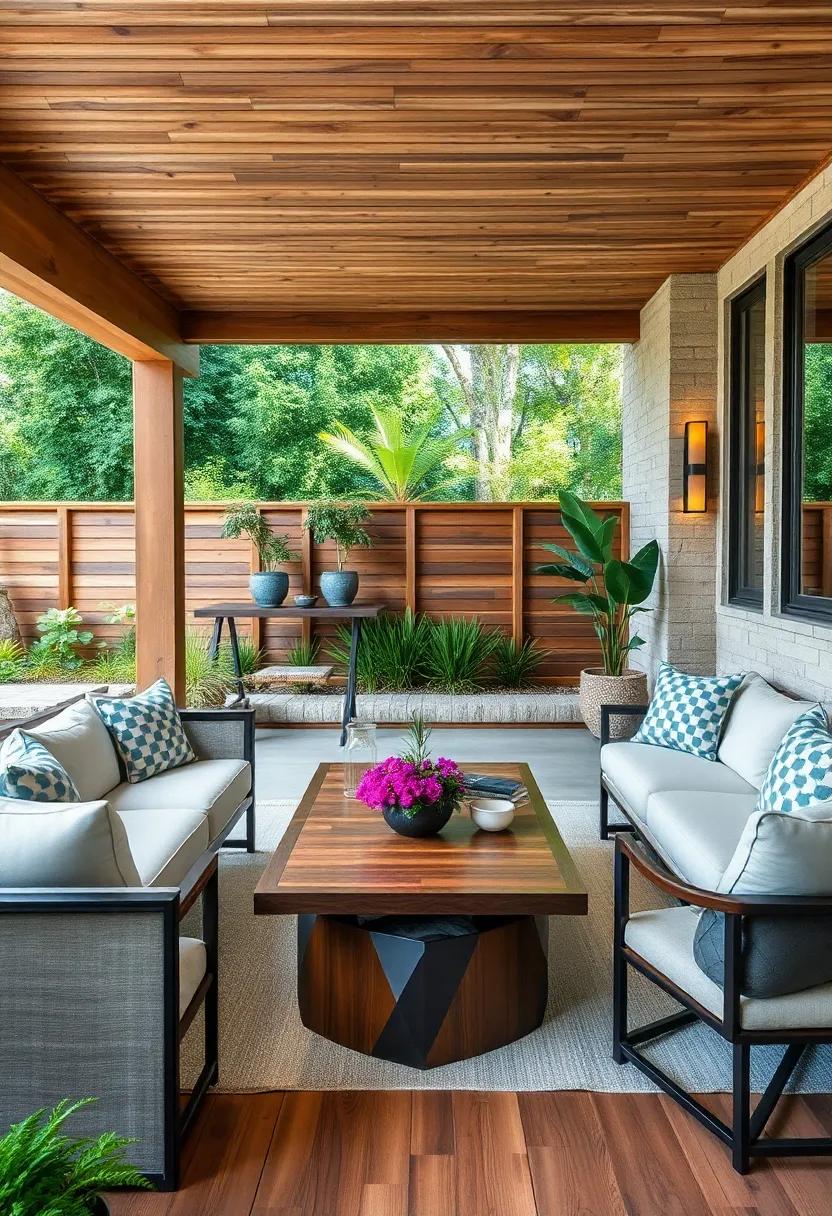
In the world of interior design,the combination of wood and metal has emerged as a striking trend that blends warmth and strength seamlessly. By using innovative materials, homeowners can achieve the enduring appeal of natural wood while minimizing maintenance concerns. As an example, bamboo composites and reclaimed wood not only give the charm of traditional timber but also boast remarkable durability. These alternatives can be paired elegantly with brushed stainless steel or powder-coated aluminum, offering a modern touch to classic designs.
The visual contrast between the organic texture of wood and the sleek finish of metal creates a dynamic aesthetic that elevates any space. This fusion comes to life through various home installations, such as:
- Artistic Fixtures: Lighting and sculptures that integrate both mediums.
- furniture Pieces: Tables and chairs that showcase mixed materials.
- Architectural elements: Stairs and railings that blend strength and beauty.
To inspire your next project, consider the following attributes when selecting wood and metal combinations:
| Material | Benefits |
|---|---|
| bamboo Composite | eco-friendly, water-resistant, low maintenance |
| Reclaimed Wood | Unique character, sustainable, durable |
| Powder-coated Aluminum | Corrosion-resistant, available in various colors, lightweight |
The Visual Language of Wood: Enhancing Architectural Features with Warmth
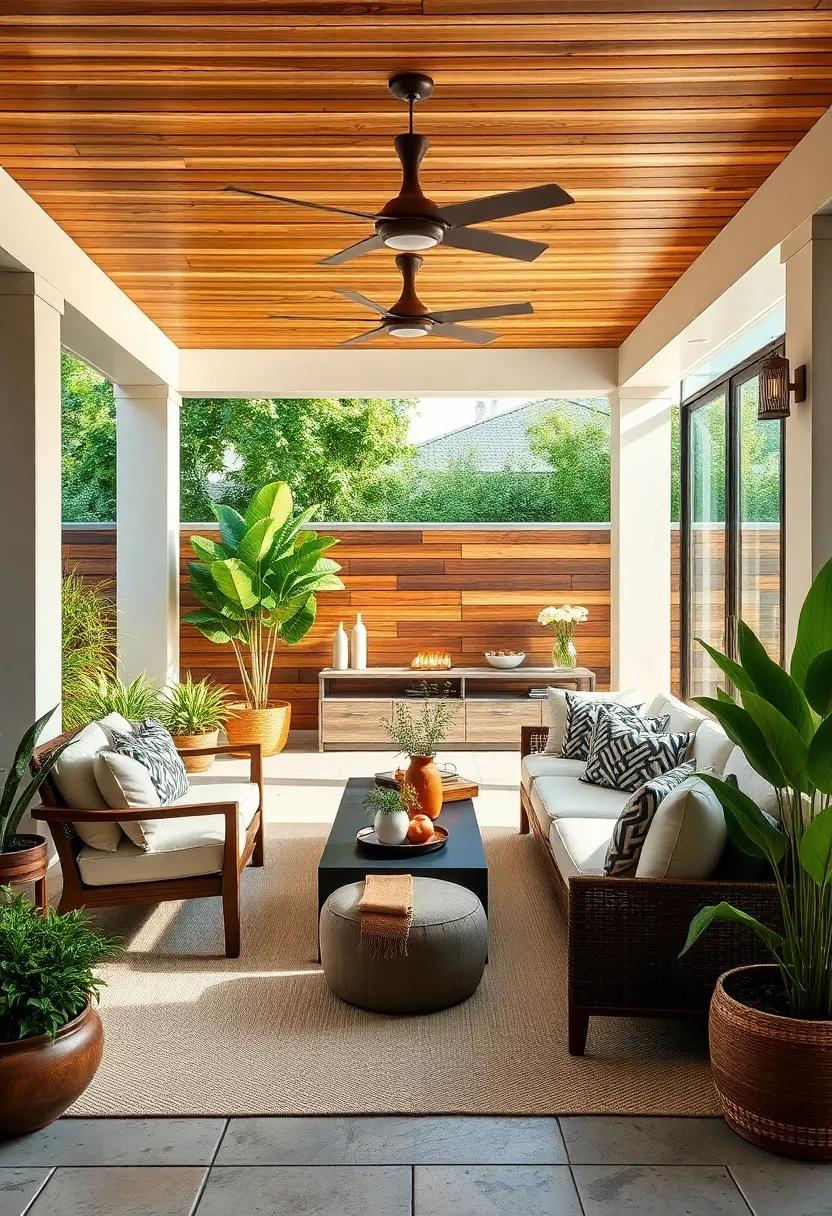
Wood, with its rich textures and organic hues, serves as a timeless accent that transforms architectural spaces. Not only dose it impart a sense of warmth and comfort, but it also offers a palette of possibilities that can drastically enhance design elements. By opting for minimal maintenance wood alternatives, architects and designers can harness the intrinsic beauty of wood without the typical upkeep. Consider features such as:
- Textured Surfaces: Incorporating wood with varied grain patterns adds depth and character.
- Natural Finishes: The submission of oil or wax can showcase the wood’s innate beauty while protecting it.
- Warm Tones: Shades of oak,cedar,and walnut can complement any color scheme,setting a welcoming ambiance.
Embracing innovative wood alternatives can also lead to sustainable choices that resonate with environmentally-conscious design. These materials not only minimize the ecological footprint but also enhance the aesthetic appeal of any structure. Some popular options include:
| Wood Alternative | Description | Benefits |
|---|---|---|
| Thermally Modified Wood | Wood treated with heat to improve durability and resistance. | Dimensional stability and resistant to decay. |
| Bamboo | A fast-growing grass that mimics the qualities of hardwood. | high strength and sustainability. |
| Reclaimed Wood | Repurposed wood sourced from old structures. | Unique character and reduced waste. |
Timeless Tributes: Using Wood Elements to Celebrate Architectural Heritage
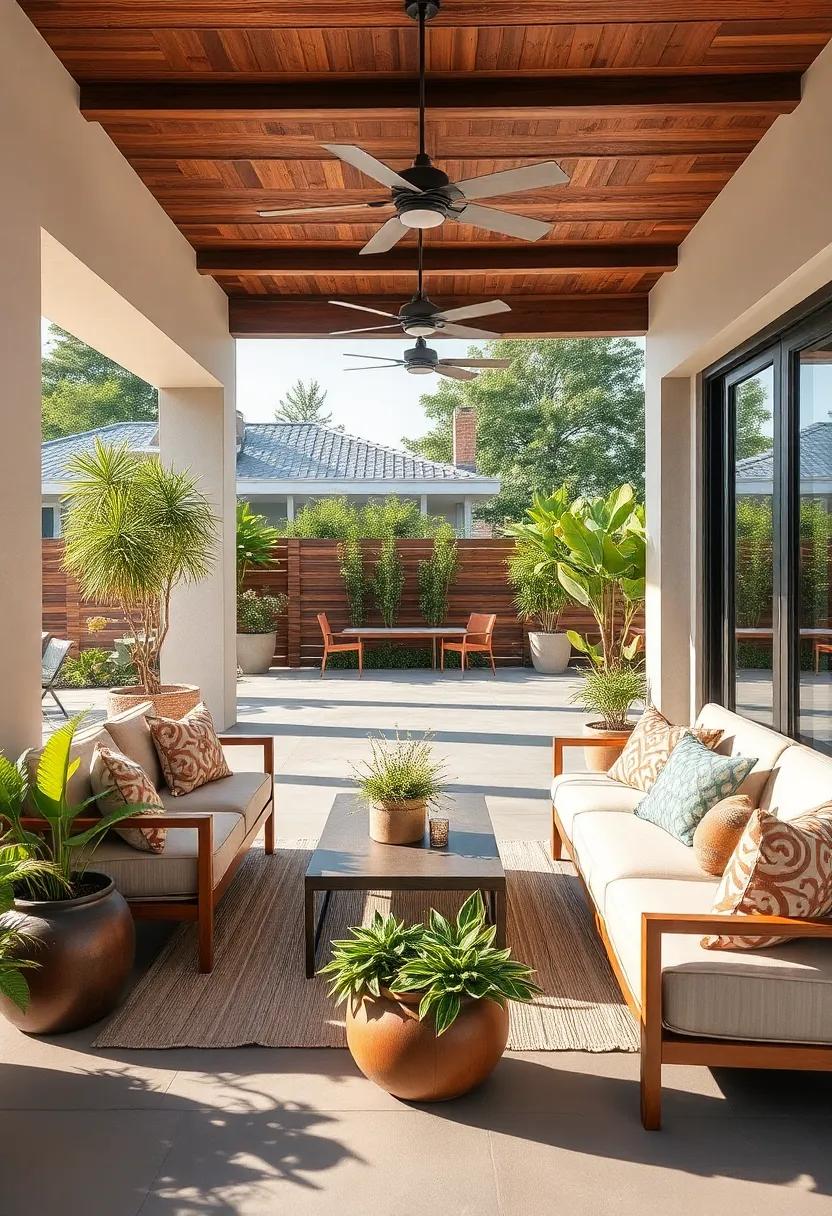
The rich texture and warmth of wood speak volumes in architecture, capturing the essence of time-honored craftsmanship. By embracing innovative wood alternatives, architects and designers can preserve heritage aesthetics while steering clear of intensive upkeep. Sustainable options such as engineered wood, composite materials, and modified wood are increasingly popular for their durability and minimal maintenance needs. These materials not only enhance the timeless beauty of structures but also represent a conscious step towards eco-friendly practices that honor the legacy of traditional craftsmanship.
Utilizing wood elements in modern design allows for a fusion of the old and the new, breathing life into historical contexts with a touch of contemporary elegance. Here are some key considerations when selecting minimal-maintenance wood alternatives:
- Low Maintenance: Materials that resist decay, weathering, and insect damage.
- Sustainable Sourcing: products that utilize reclaimed or responsibly harvested wood.
- Versatile Aesthetics: Options that seamlessly integrate with various architectural styles.
| Wood Alternative | Key Features |
|---|---|
| Engineered Wood | Stable, moisture-resistant, eco-friendly production. |
| Composite Materials | Durable,low maintenance,resistant to fading. |
| Modified Wood | Enhanced durability, resistant to rot and insects. |
Chic Flexibility: Discovering Plywood’s Transformative Aesthetic
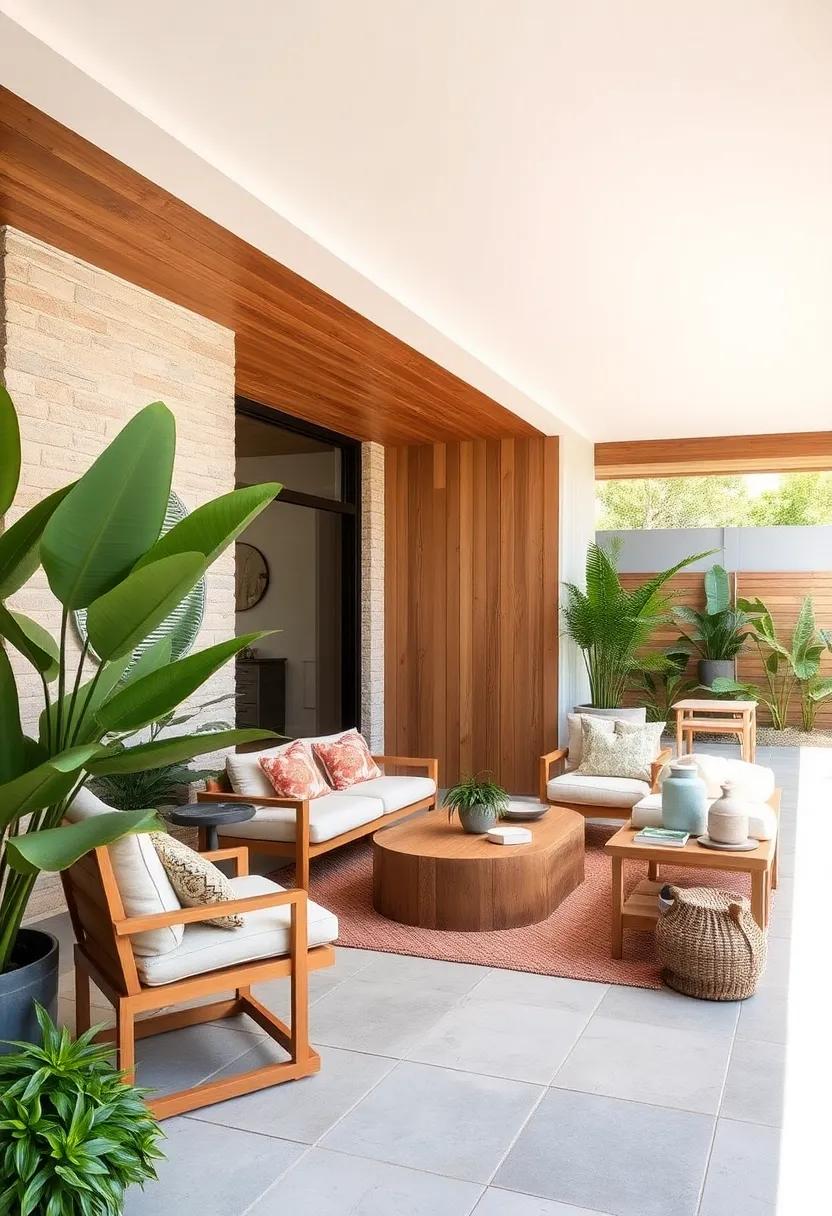
Plywood is often dismissed as a mundane material, yet its versatility and aesthetic appeal can turn the ordinary into the extraordinary. The beauty of plywood lies in its unique grain patterns and warm tones, allowing it to blend seamlessly with various design styles, from industrial chic to minimalist elegance. With the right finishes, plywood transformations can elevate interiors and create a sense of effortless sophistication. Here’s how plywood can redefine your space:
- Sculptural Forms: Plywood can be shaped into flowing lines and curves, making stunning furniture pieces that serve as art.
- Textured Surfaces: Applying different stains and finishes can enhance the natural grain, producing captivating textures that intrigue the eye.
- Lightweight and Strong: The structural integrity of plywood allows for elegant designs without sacrificing durability, making it perfect for both functional and ornamental elements.
| Application | Benefit |
|---|---|
| Wall panels | Creates warm, inviting spaces with ease of installation |
| Furniture | Combines aesthetics with strength for long-lasting pieces |
| Home Decor | Adds a unique touch to traditional decor with modern flair |
Reimagining plywood in various contexts not only celebrates its inherent qualities but also highlights its role in sustainable design. By choosing plywood, you embrace a material that epitomizes conscious luxury, requiring minimal maintenance while delivering maximum style.The ease of care and long-lasting nature of plywood ensures that your spaces remain effortlessly elegant, aligning perfectly with today’s aesthetic sensibilities.
Curating a Calm Environment: The balance of Softwood and Minimalism
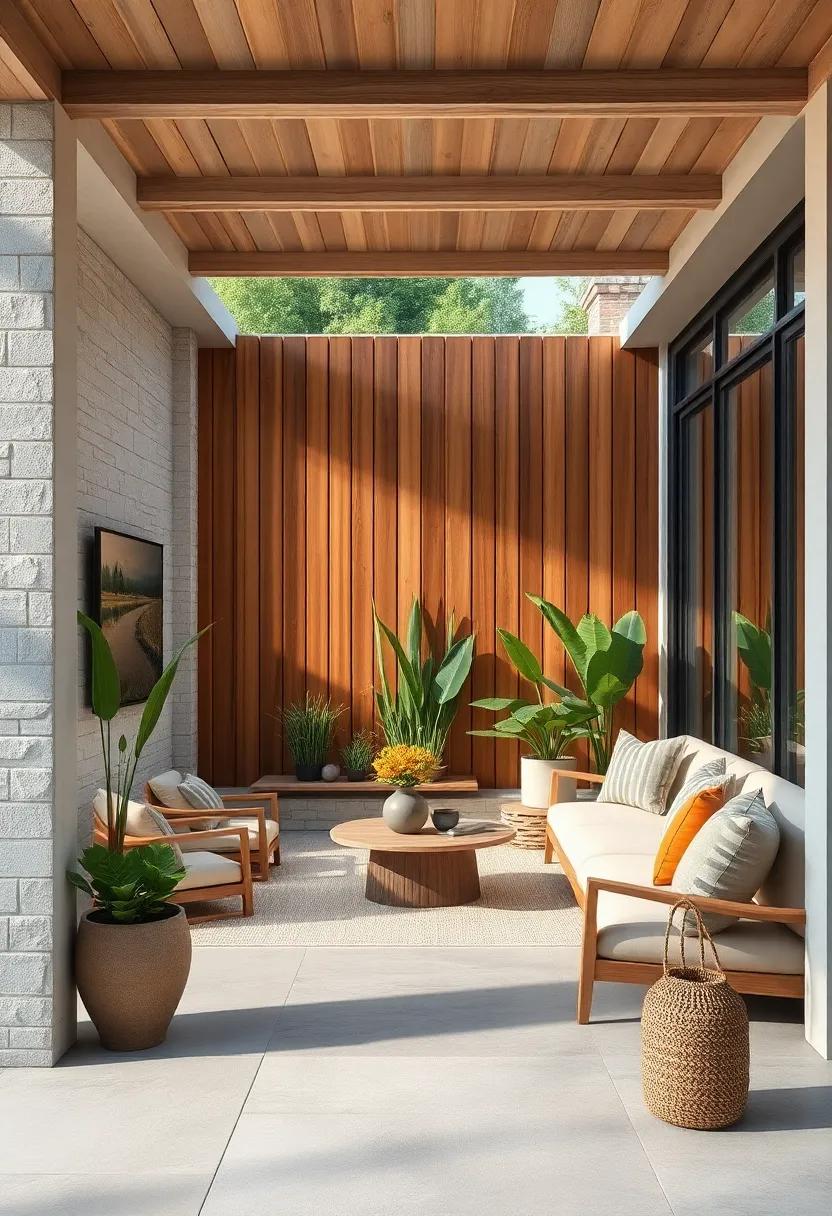
Embracing softwood in your living spaces fosters a serene atmosphere that beautifully complements minimalist aesthetics. The natural grain and warm hues of softwood bring an organic touch to interiors, promoting a sense of tranquility. By incorporating these materials thoughtfully, you can:
- enhance Light Reflection: Softwood’s lighter tones help to bounce natural light around, brightening even the coziest corners.
- Create Textural Variety: The unique textures of different softwoods add depth to minimalist designs without overwhelming the senses.
- Maintain Simplicity: Unlike hardwoods that frequently enough require extensive upkeep, softwoods lend themselves to easy maintenance, allowing for more time spent enjoying your space.
To further emphasize the harmony of your environment, consider selecting pieces that resonate with the principles of minimalism. Elements like a simple wooden coffee table or elegant shelving can serve as focal points without cluttering the visual space. A well-structured layout can include:
| Furniture Type | Softwood Alternative | Minimalism Feature |
|---|---|---|
| Table | pine | Clean lines |
| Shelves | Cedar | Open design |
| Benches | Fir | Unadorned style |
Integrating such elements achieves a scenic balance where elegance meets effortless living. With softwoods and a focus on minimalism, you set the stage for a calming retreat from the demands of everyday life.
Nature’s Palette: Crafting a Cohesive Look with Variegated Wood Shades
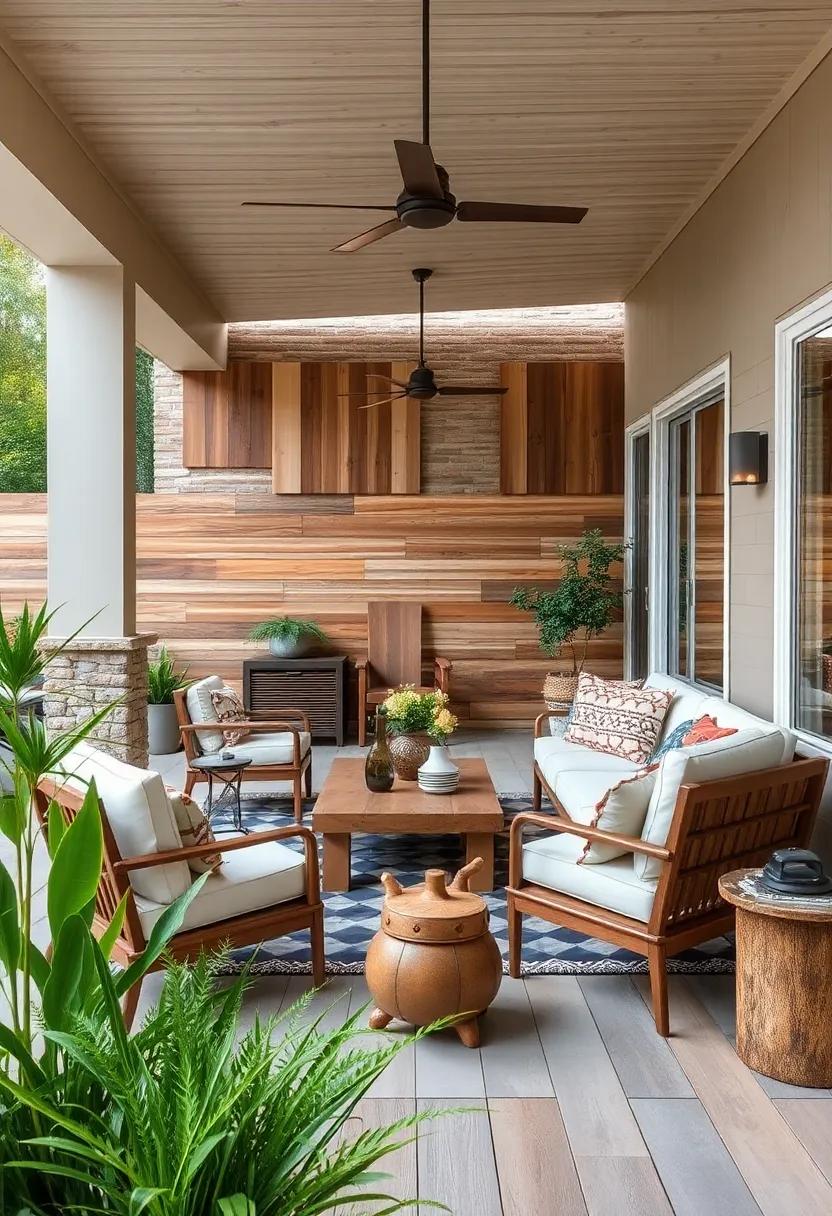
When it comes to designing interiors with a natural touch,the rich variations in wood can transform a space into a warm,inviting retreat. Each plank tells its own story, with shades ranging from deep mahogany to light ash, allowing for a wide spectrum of hues that harmonize beautifully together. To achieve a stunning aesthetic, consider integrating multiple shades of wood in your furniture, flooring, and accents. This technique not only adds depth but also creates a layered look that feels both curated and effortless.
Achieving a cohesive look with variegated wood tones relies on a thoughtful selection of pieces. Start by choosing a dominant shade as your base, then introduce complementary hues that can be sourced from various elements within the space. Relying on natural light can enhance these wood tones further, amplifying warmth and dimension. To successfully pull off this aesthetic, consider the following tips:
- Balance Textures: Mix smooth finishes with coarse grains to highlight the natural beauty of wood.
- Incorporate Accessories: Use pillows,throws,or art that pick up on the wood tones for a harmonious look.
- Play with Patterns: A patterned rug can anchor your design while blending the color variations.
Elevating Space: Minimalist Wood Accents for Ageless Sophistication
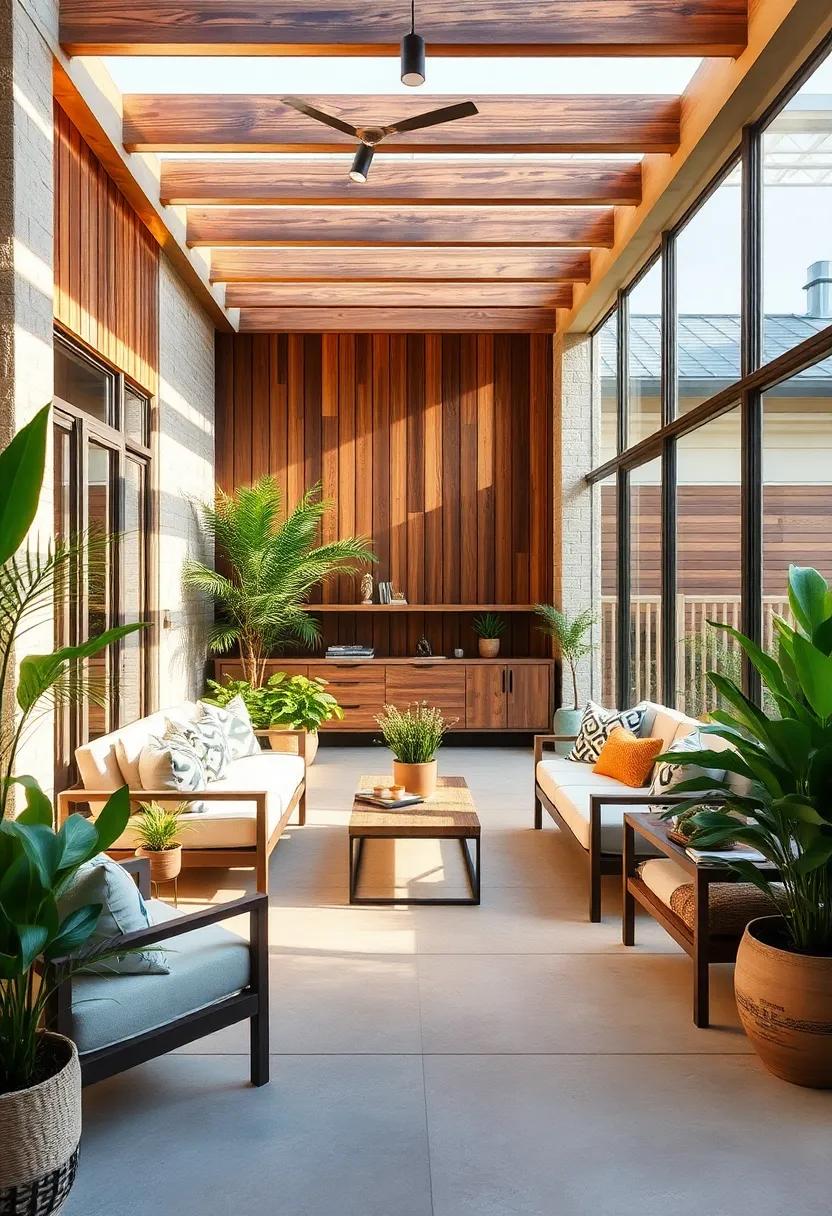
When it comes to achieving a timeless aesthetic, minimalist wood accents stand out for their innate ability to enhance any space without overwhelming it.The sleek lines and natural grains of wood embody a warmth that brings both comfort and elegance to modern interiors. Whether it’s through furniture pieces, wall paneling, or decorative objects, these elements can effortlessly contribute to a refined atmosphere. Consider some of the following options for incorporating wood into your design:
- Floating shelves: Create an illusion of space while displaying books and decor.
- Accent tables: Use minimalist shapes to draw the eye and serve practical purposes.
- Wood beams: Expose structural elements to add character and depth to ceilings.
In today’s design landscape, low-maintenance wood alternatives are also making a notable impact, enabling homeowners to embrace the aesthetic without the upkeep. Materials like engineered wood or thermally modified timber provide durability and resistance against the elements. Additionally, these alternatives allow for versatile applications without sacrificing style. To illustrate the potential of each material, refer to the following table:
| Material | Durability | Maintenance |
|---|---|---|
| Engineered Wood | Highly durable with resistance to warping | Low maintenance; occasional cleaning |
| Thermally Modified Timber | Increased stability; insect and rot resistant | Minimal upkeep; no chemical treatments needed |
Effortless Style: Harmonizing Indoor and Outdoor Spaces with Wood Elements
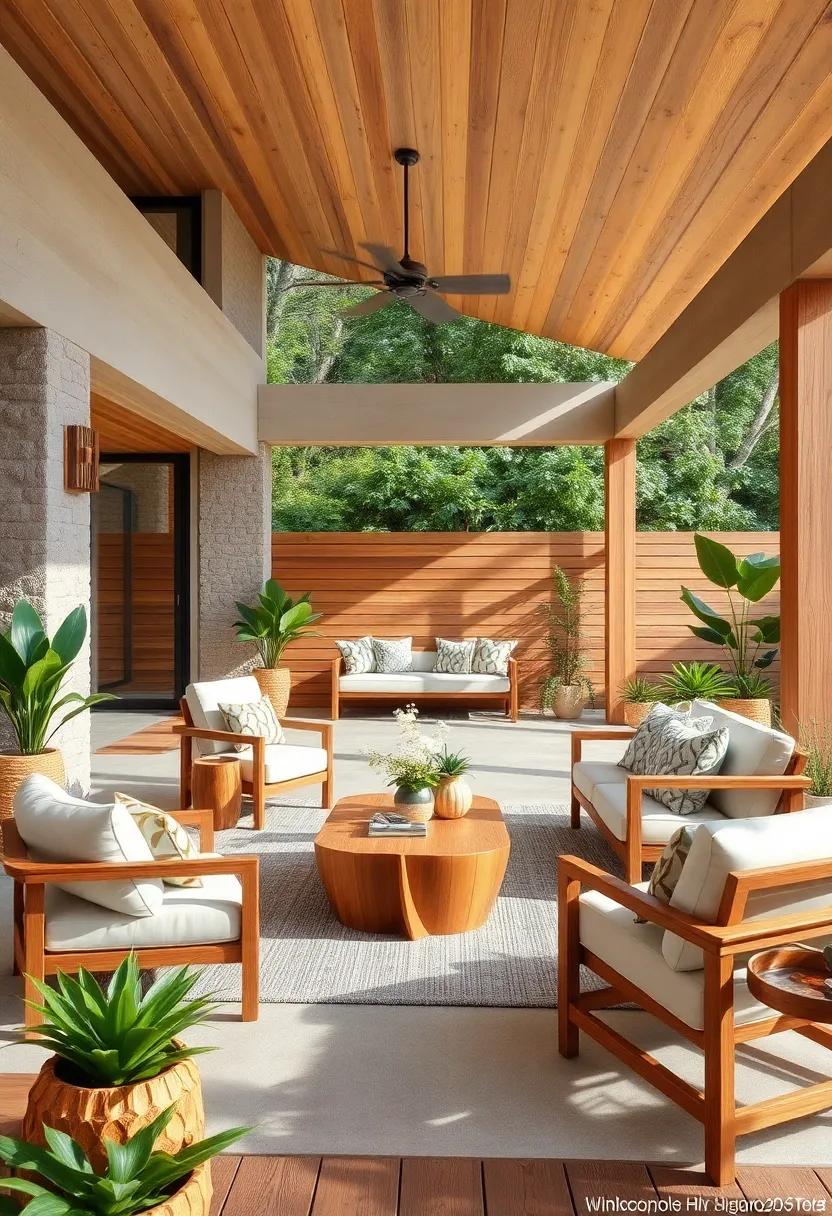
Creating a seamless transition between indoor and outdoor environments can transform your living space into a cohesive sanctuary. A key component in achieving this look is the use of wood elements, which effortlessly evoke warmth and nature. opting for minimal maintenance wood alternatives allows you to enjoy the aesthetic benefits of wood without the extensive upkeep. Consider incorporating materials like composite decking or engineered wood that mimic the beauty of traditional timber while providing durability against weather and wear.This results in pristine spaces that require little attention and sustain their charm year-round.
To enhance this fluidity, design your spaces with a thoughtful approach by considering the following elements:
- Color Schemes: Choose natural wood tones that reflect both the interior palette and the outdoor scenery.
- Textures: combine various wooden textures—smooth finishes indoors pair beautifully with rougher, more rustic outdoor elements.
- Furniture Styles: Select furniture pieces that can easily transition between spaces, like weather-resistant wood dining sets that also complement your kitchen or living room.
| Wood Alternatives | Benefits |
|---|---|
| Composite Decking | Low upkeep, resistant to mold and mildew. |
| Engineered Wood | Sturdy, less prone to warping. |
| Bamboo | Eco-friendly, durable, and stylish. |
| Reclaimed Wood | Unique aesthetic, sustainable choice. |
Future Outlook
as we navigate the world of design and sustainability, the allure of minimal maintenance wood alternatives is undeniably captivating. These innovative materials offer a harmonious blend of effortless elegance and practicality, allowing us to create stunning spaces without the burden of extensive upkeep. By embracing these transformative options, we not only elevate our environments but also contribute to a more sustainable future.
Whether you’re drawn to the sleek finish of engineered wood, the durability of bamboo, or the charm of reclaimed materials, the journey towards achieving effortless elegance begins with a mindful choice. as we continue to explore and adapt to contemporary aesthetics, let us celebrate the beauty of simplicity combined with functionality. After all, in our quest for style, it’s the subtle touches that truly make a statement. So, as you embark on your own design adventure, remember that sophistication can be both effortless and enduring.
 decorifusta Garden and patio decoration inspiration
decorifusta Garden and patio decoration inspiration 